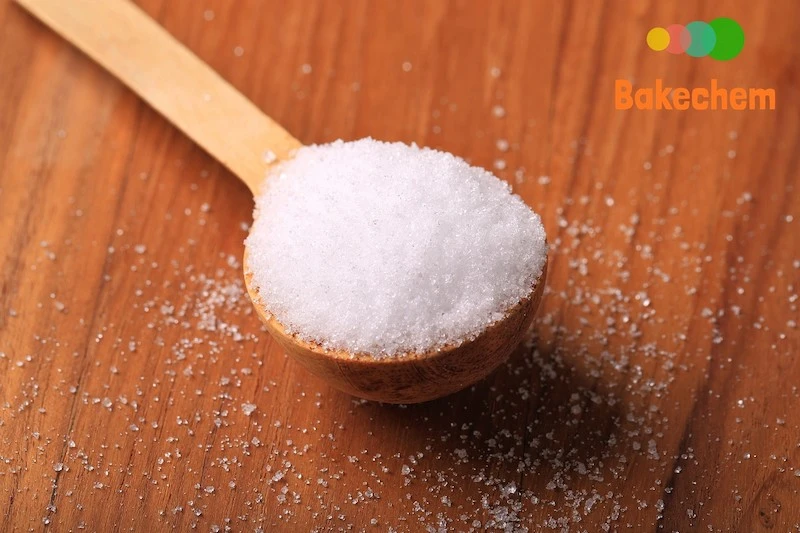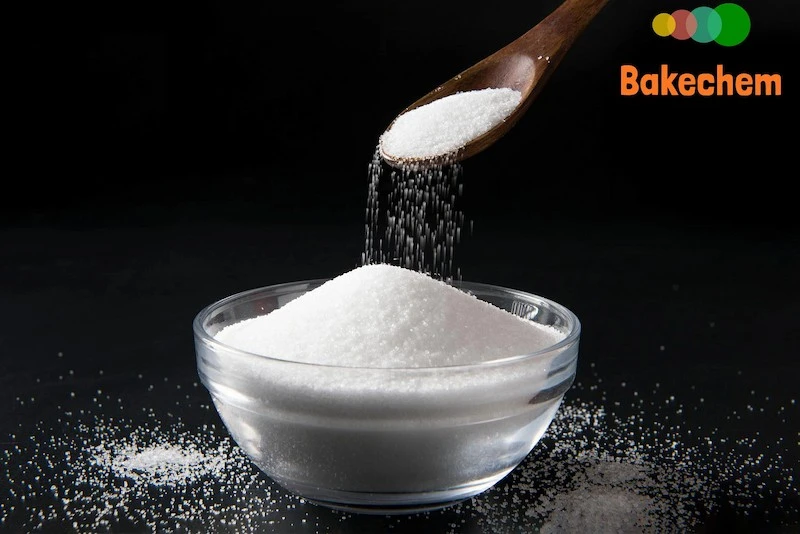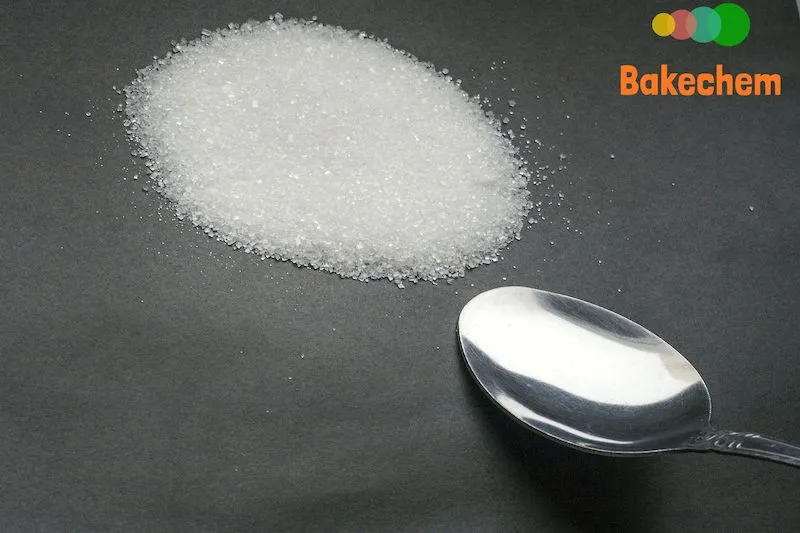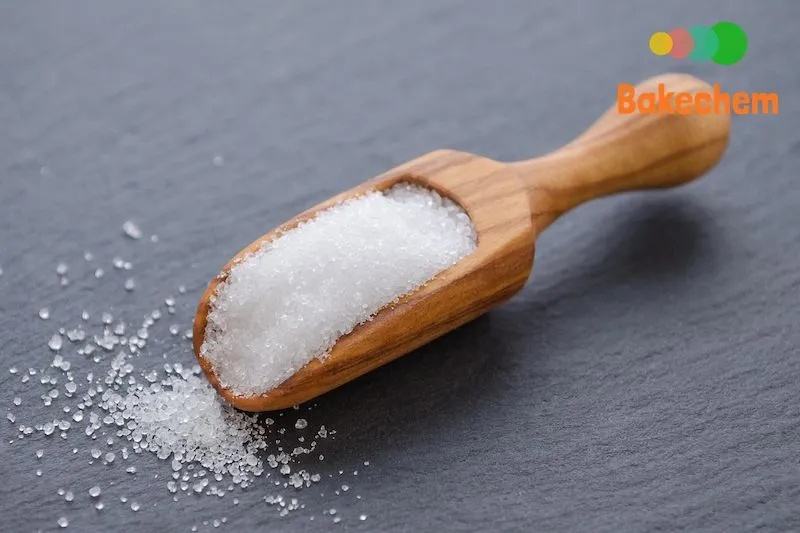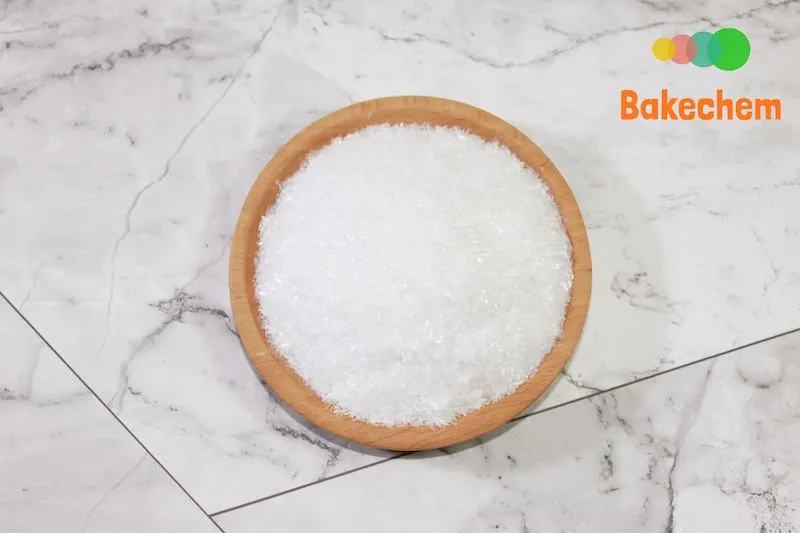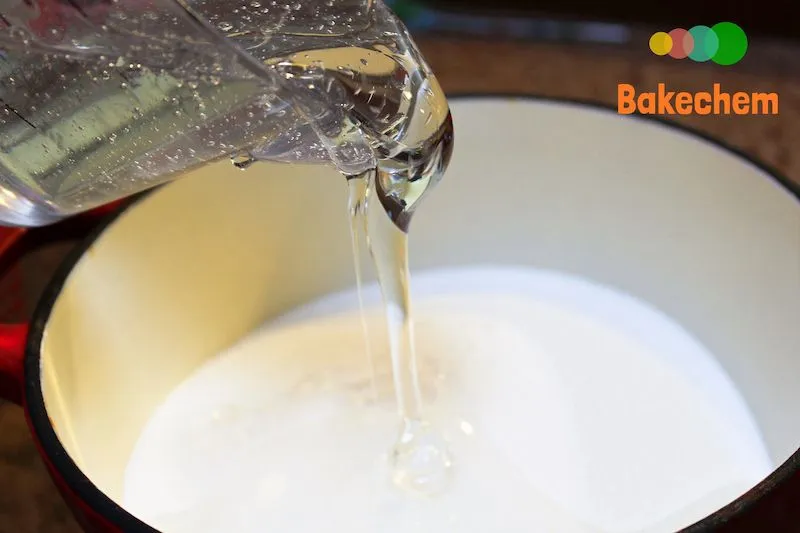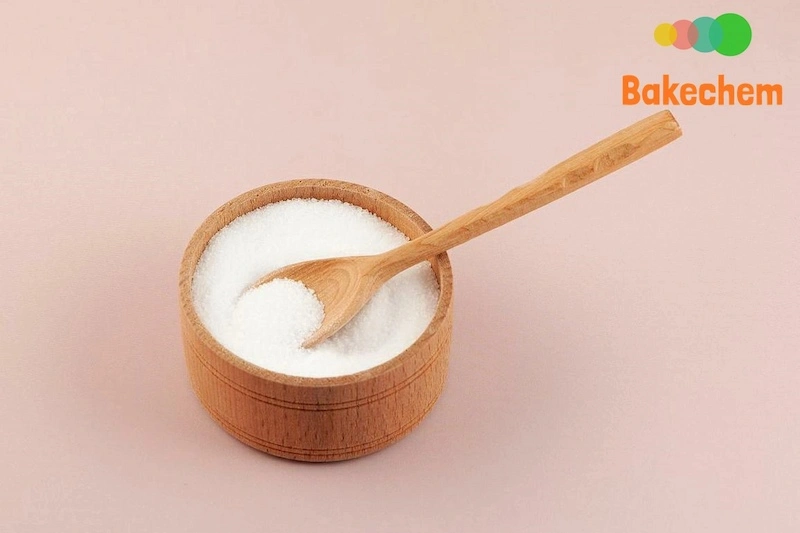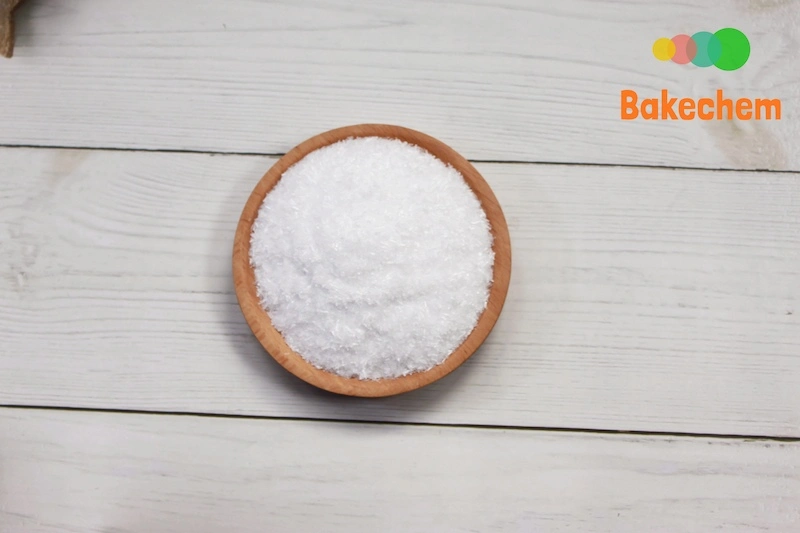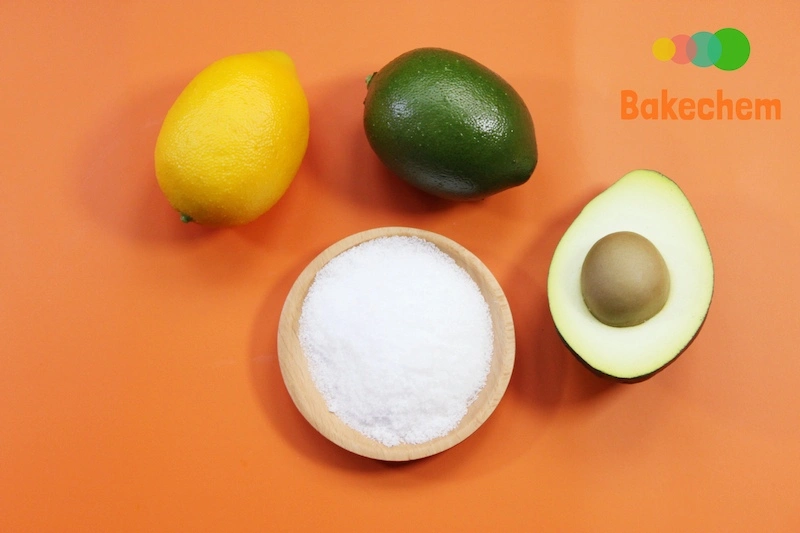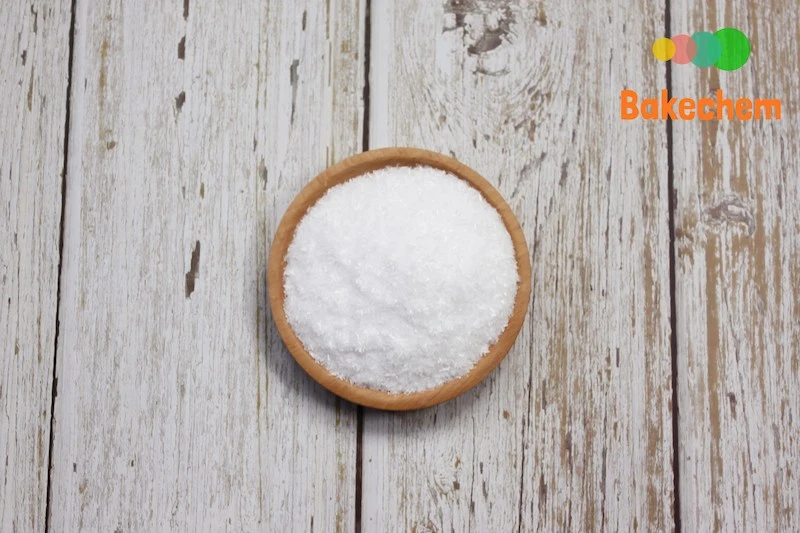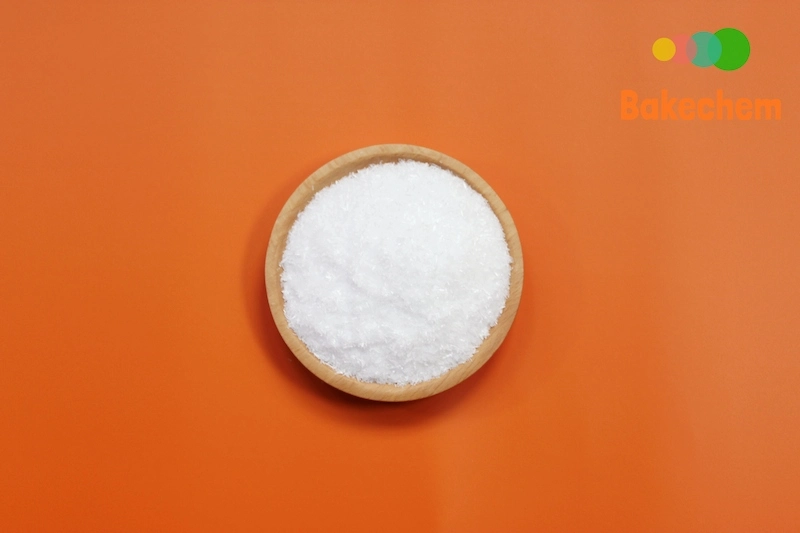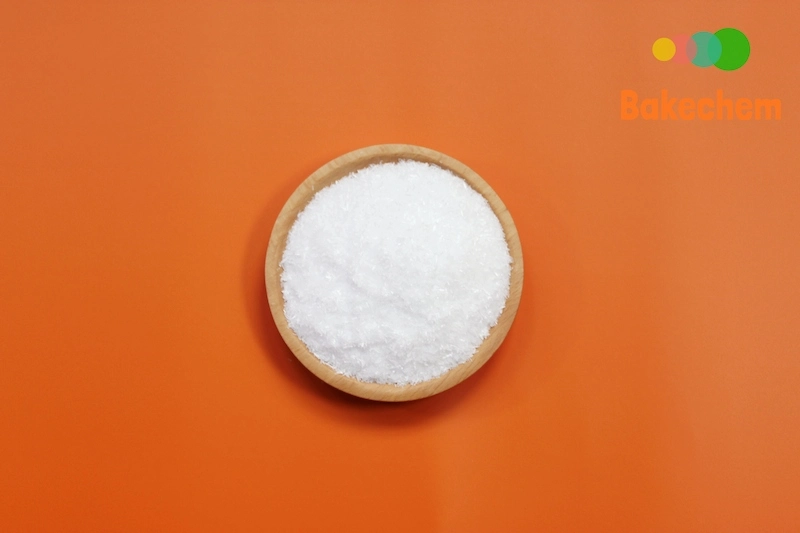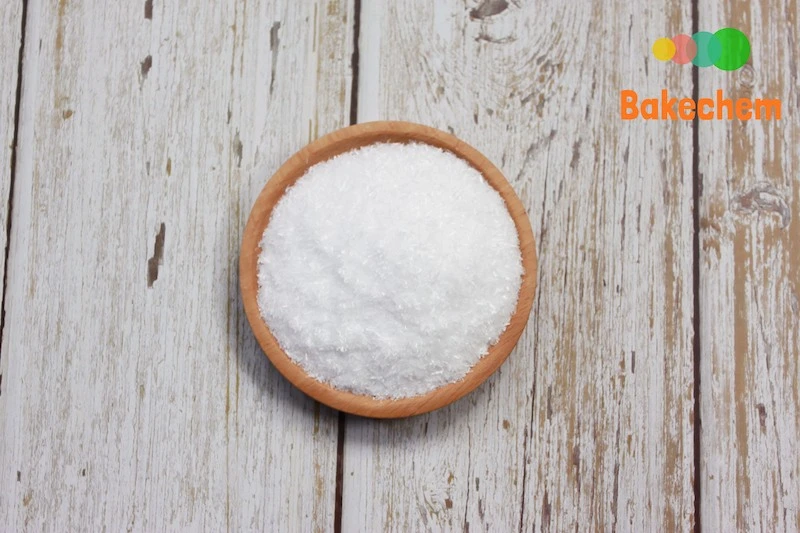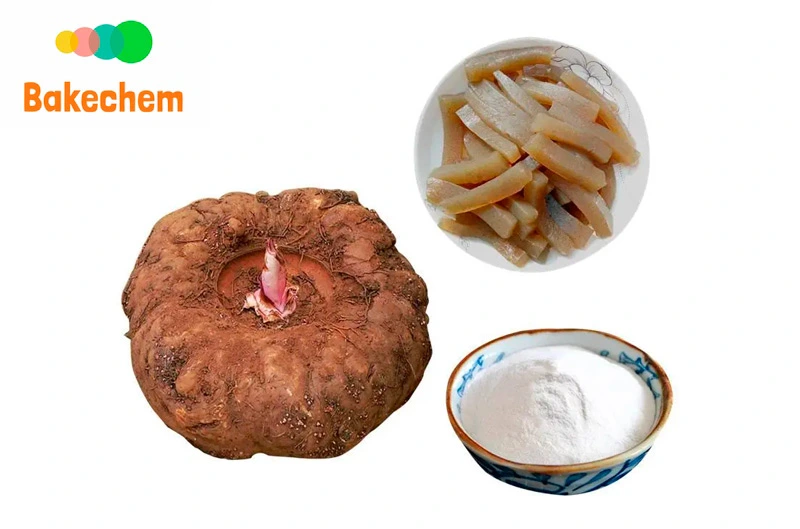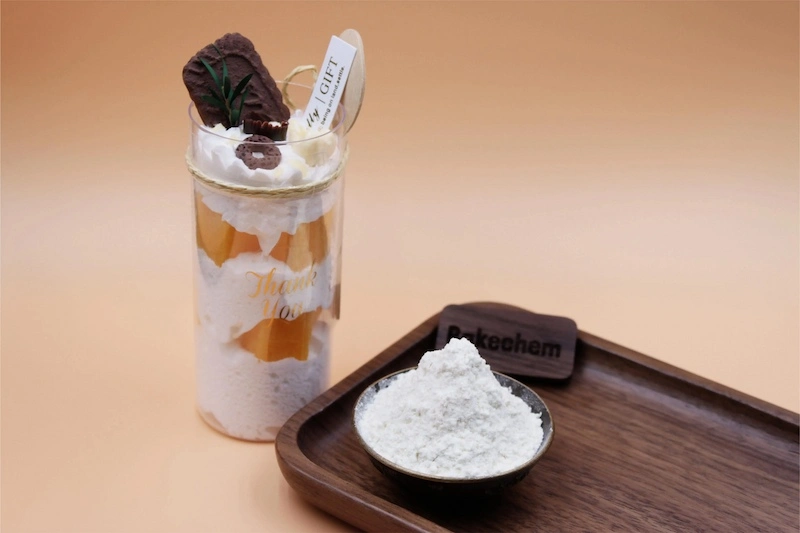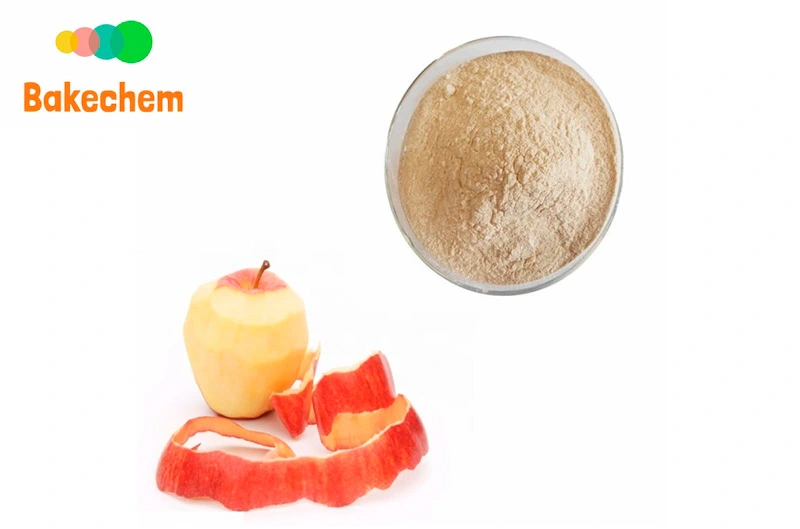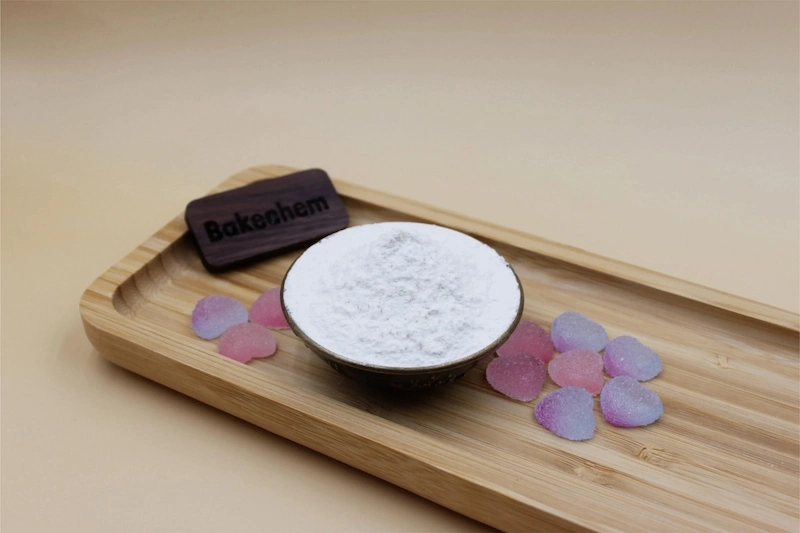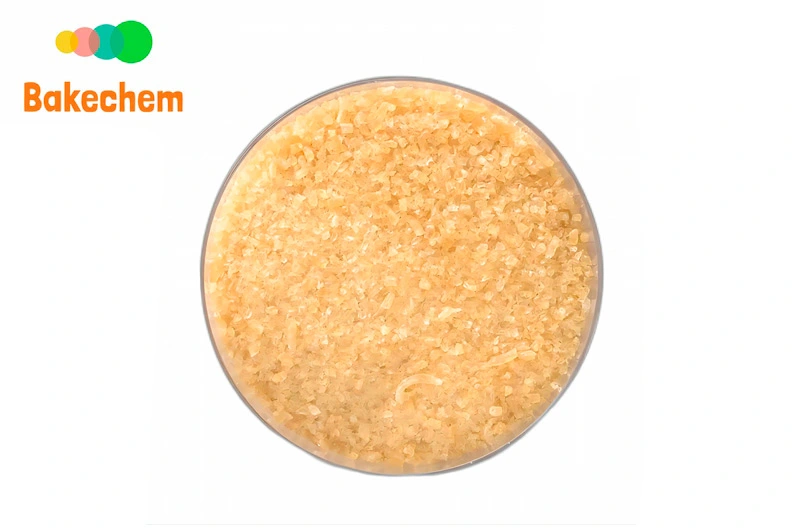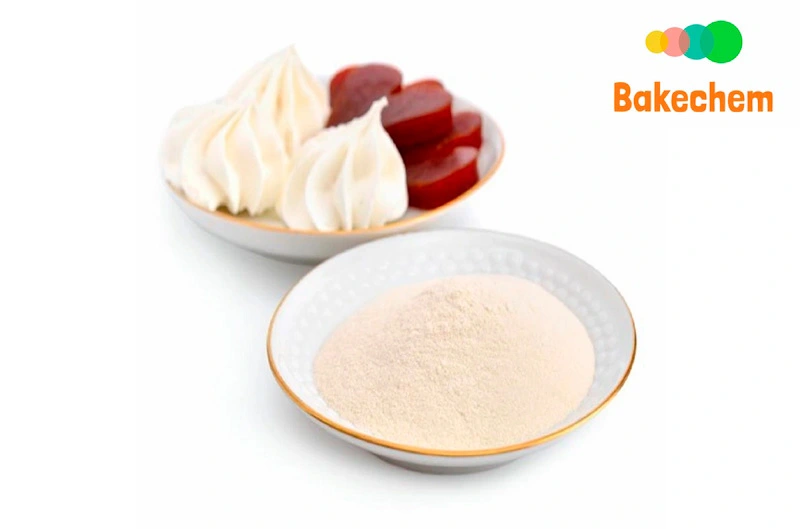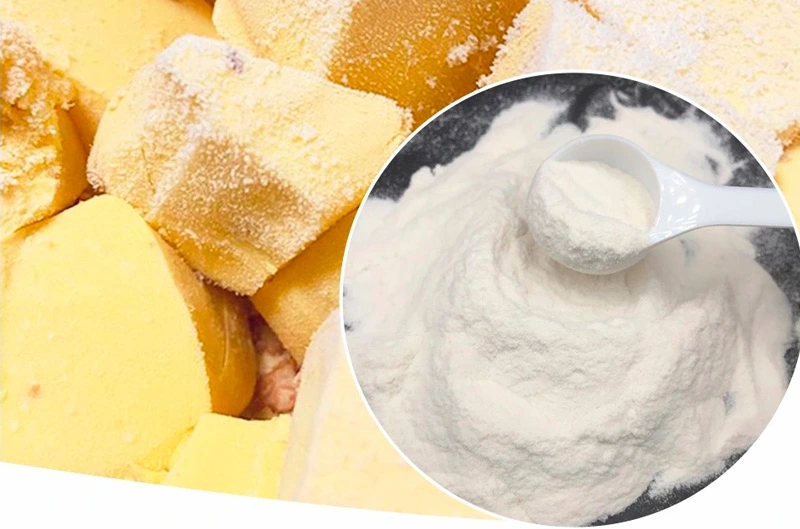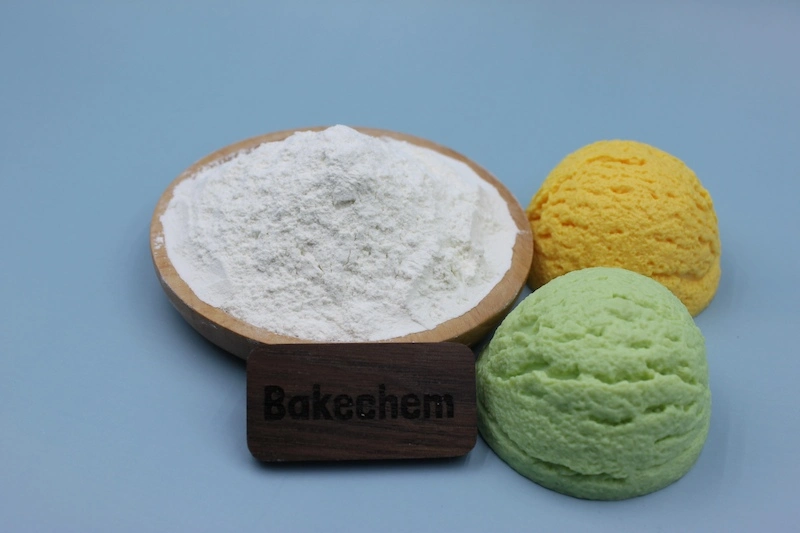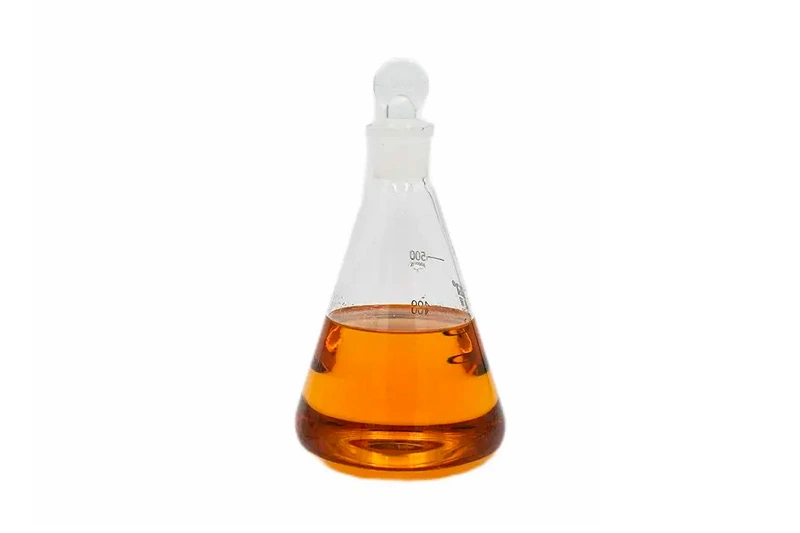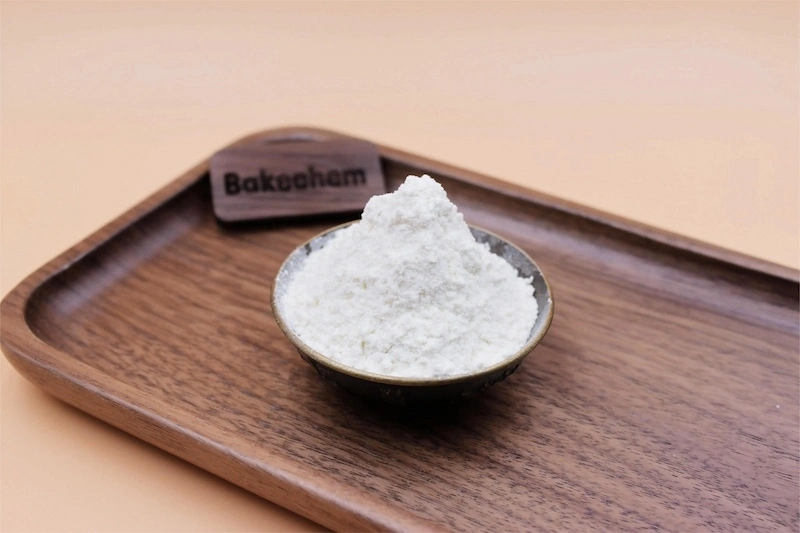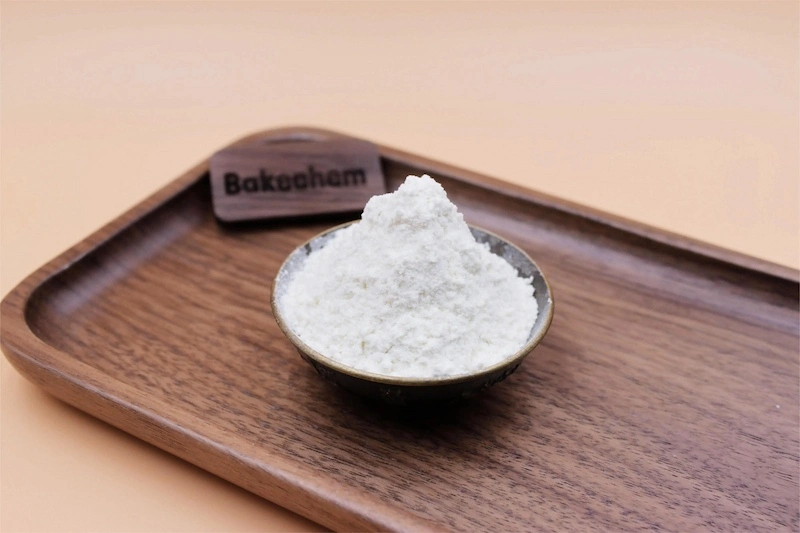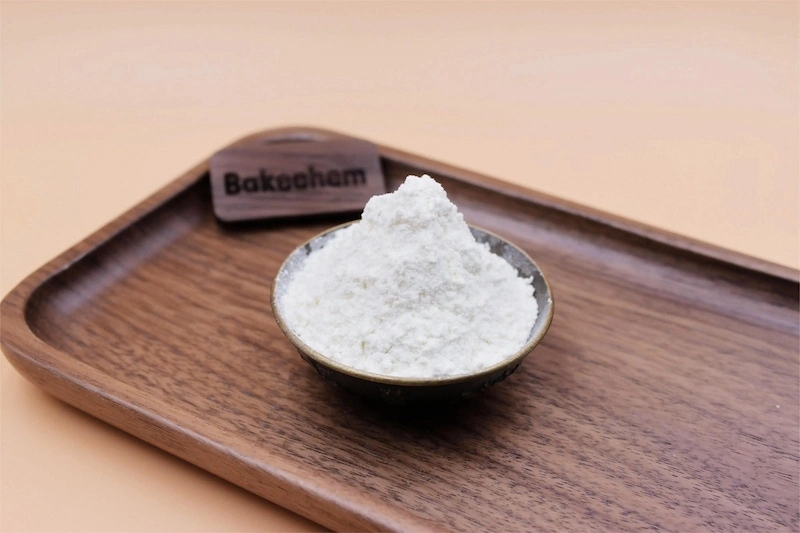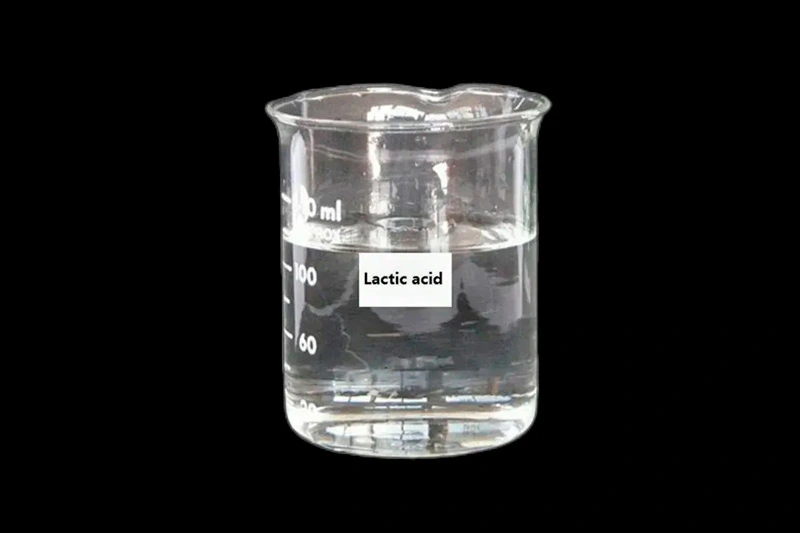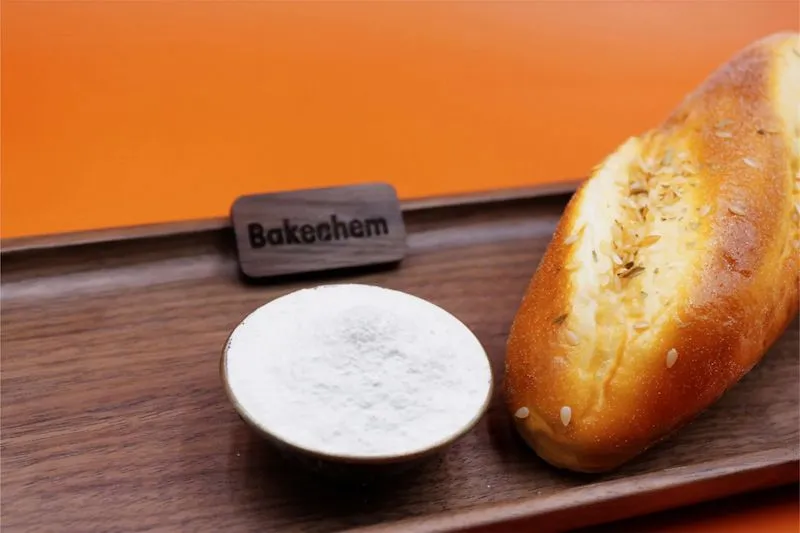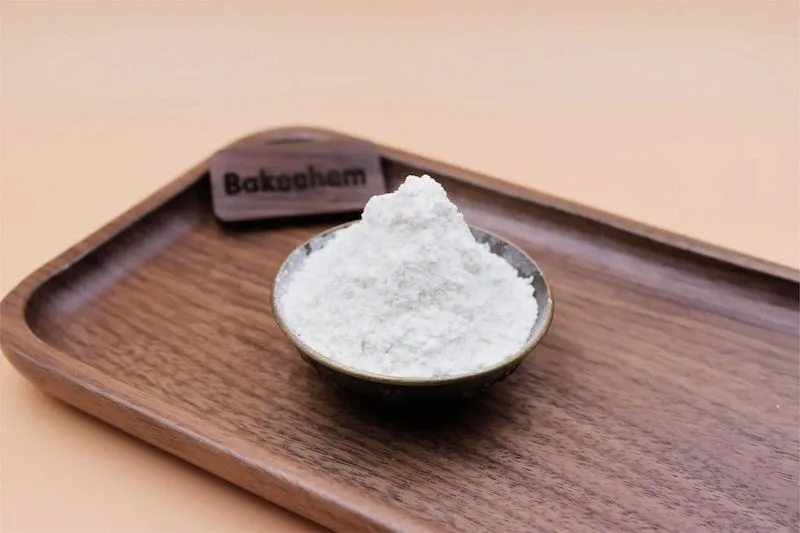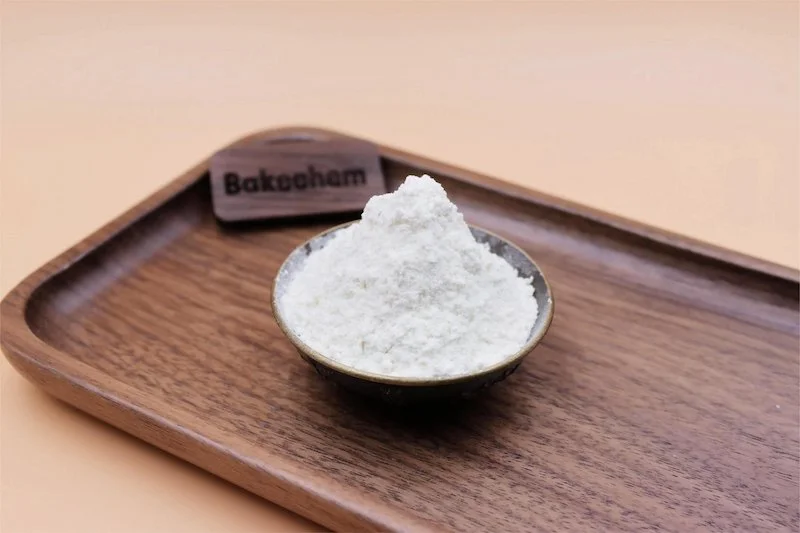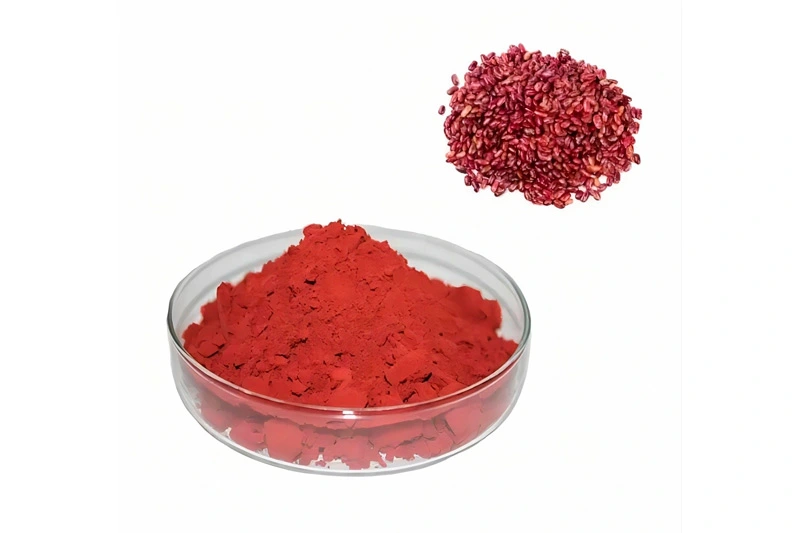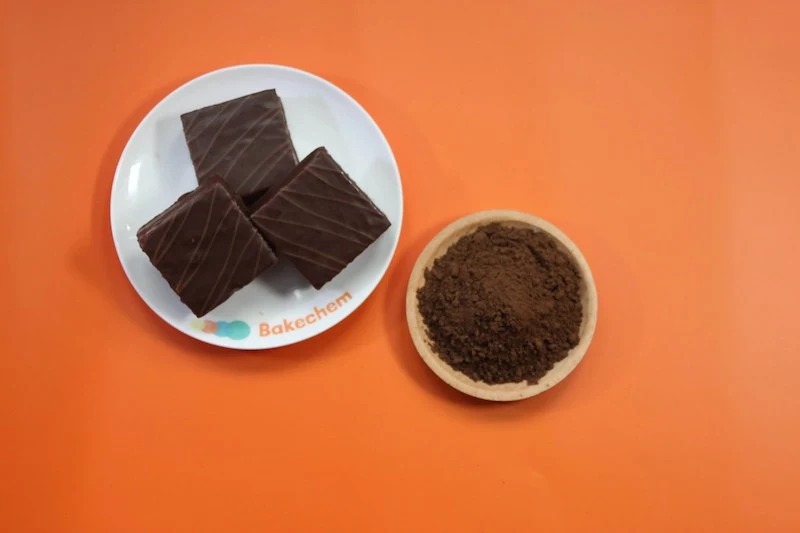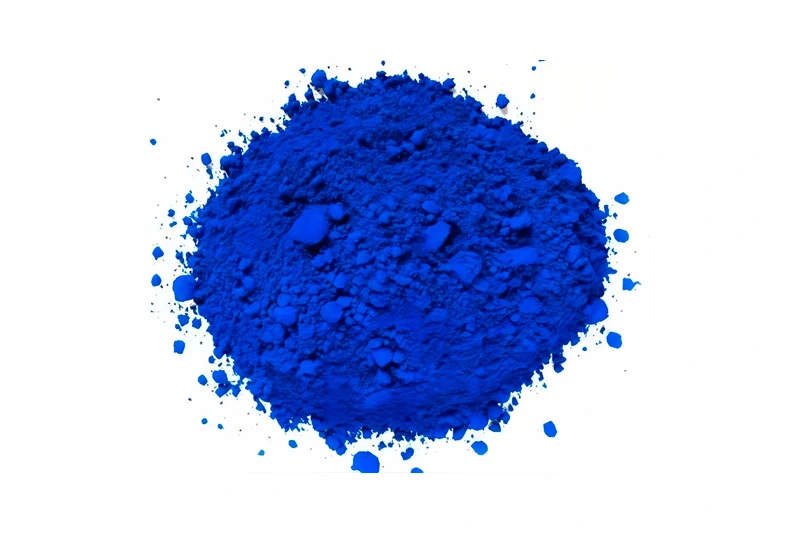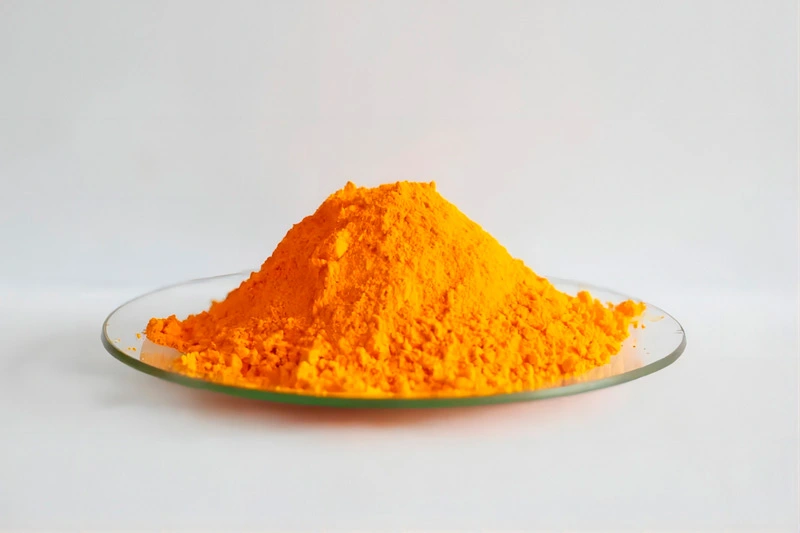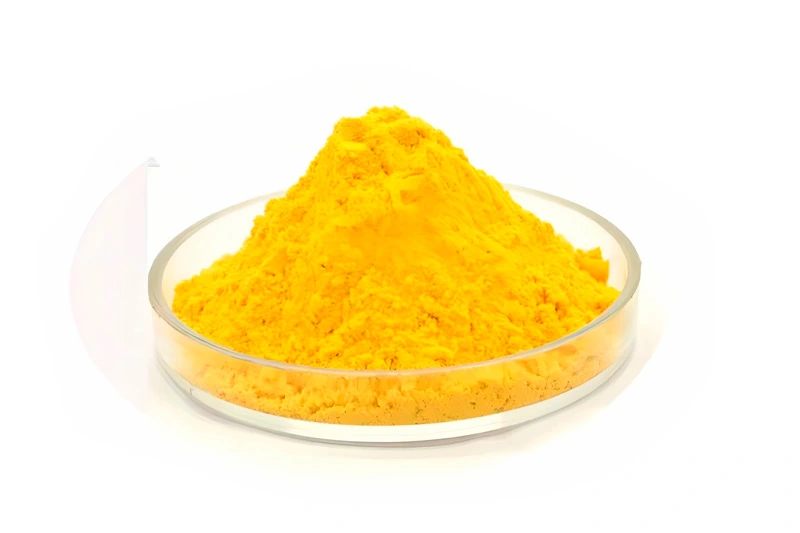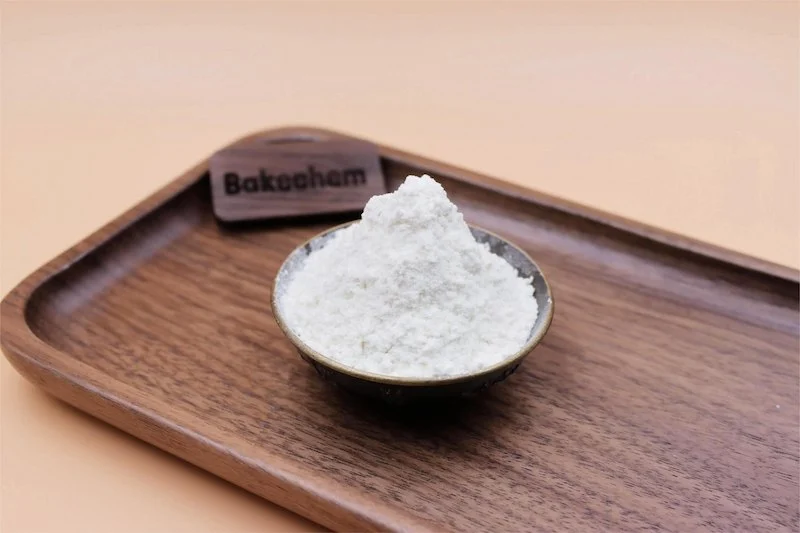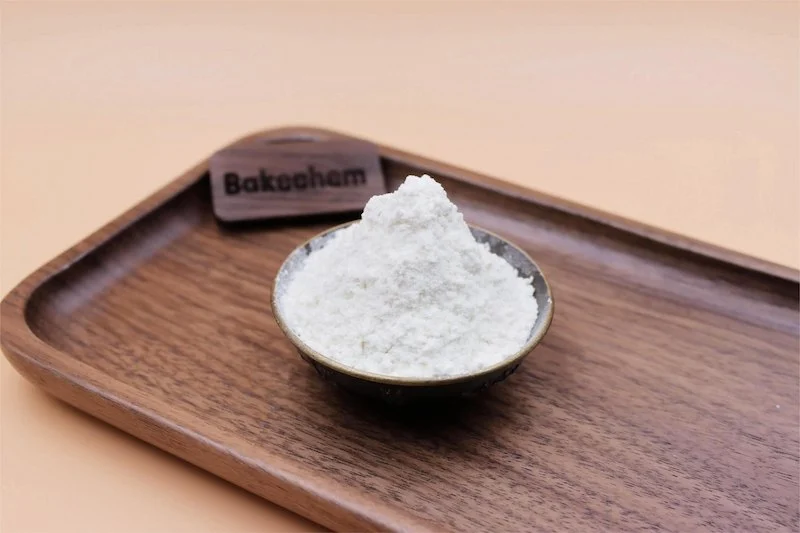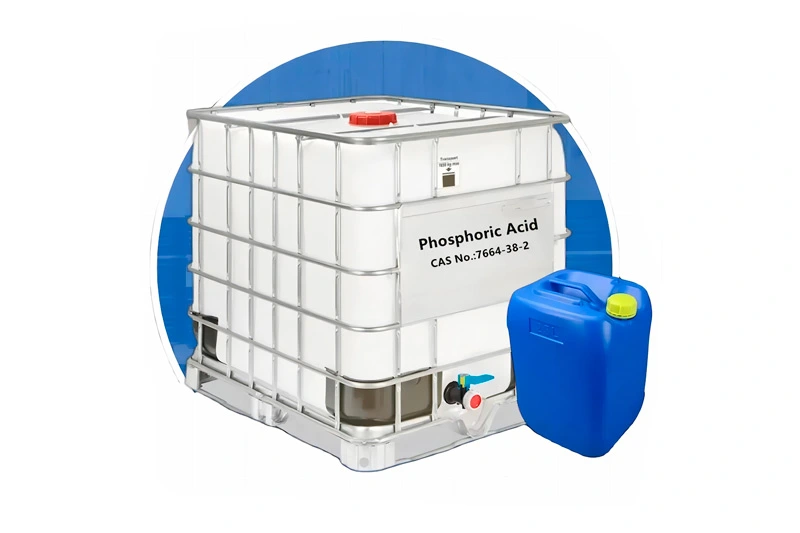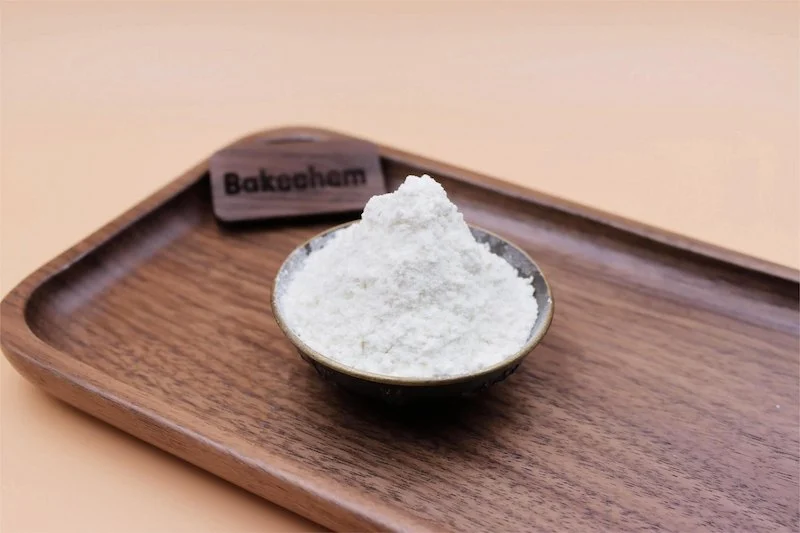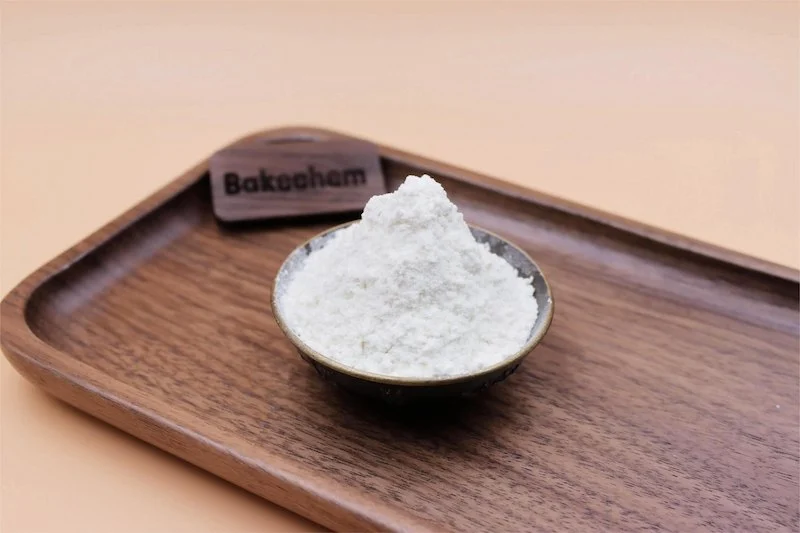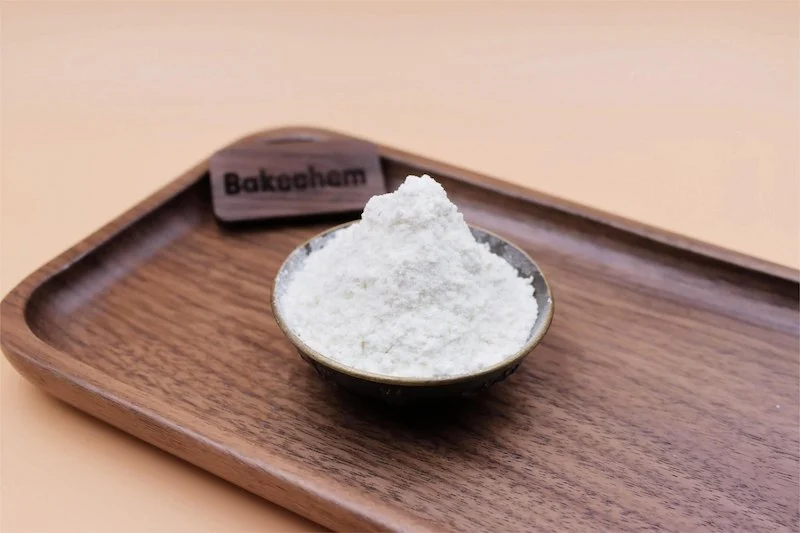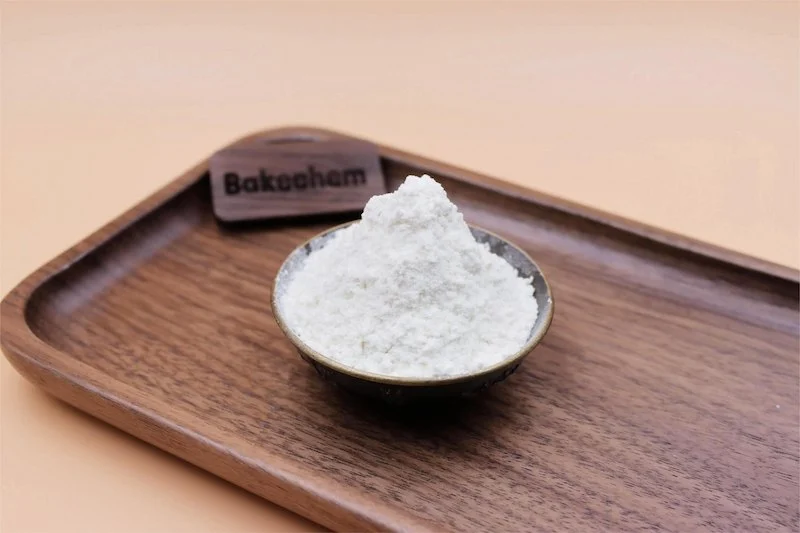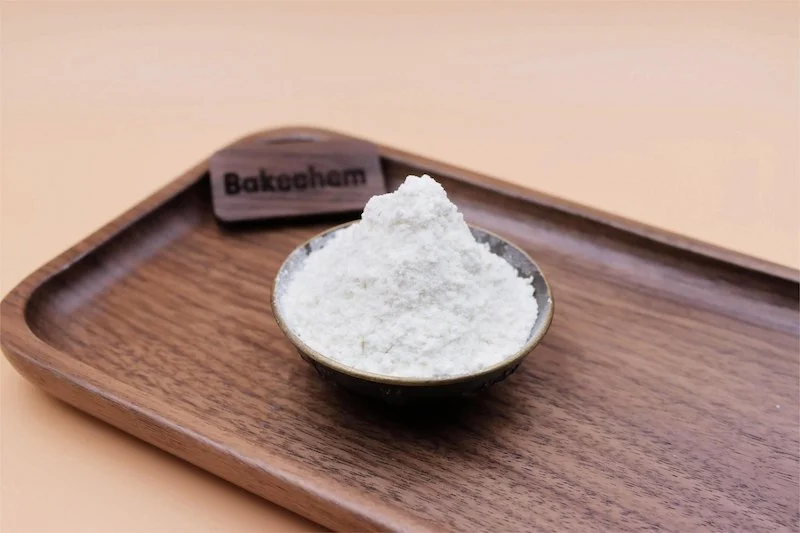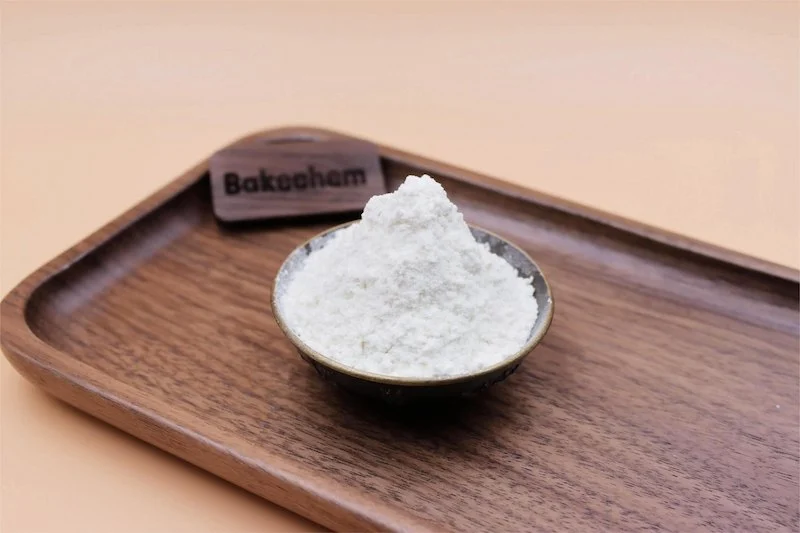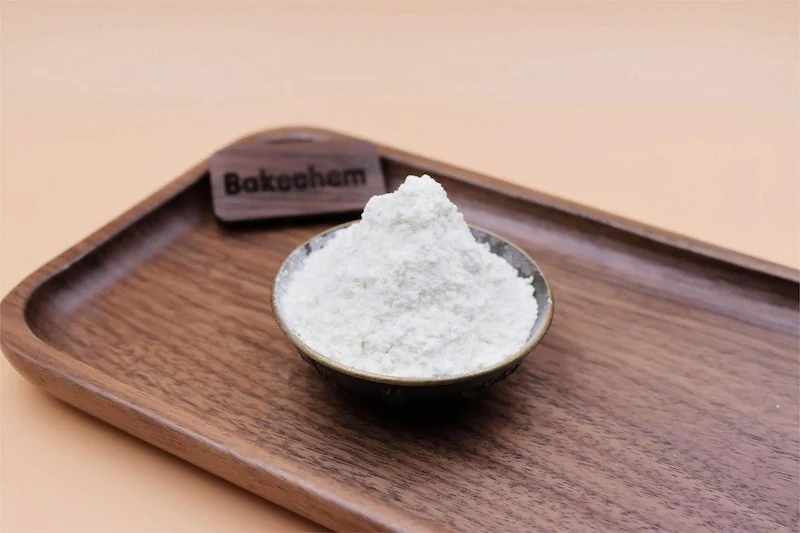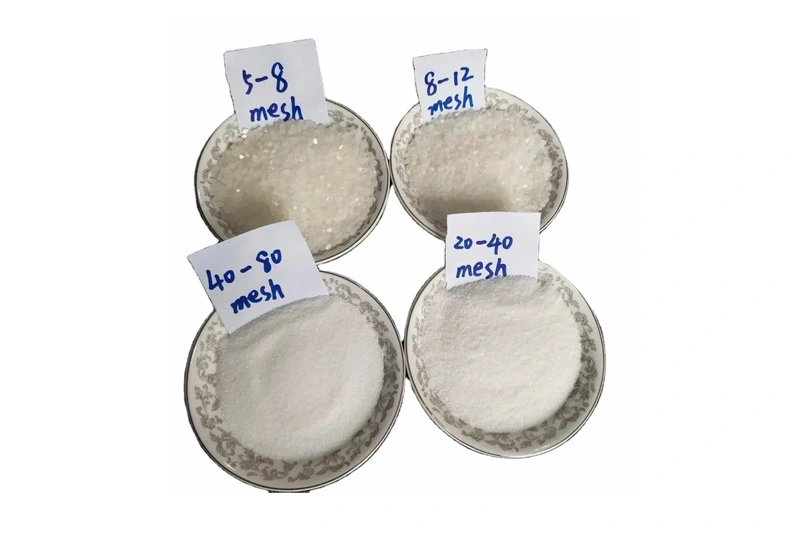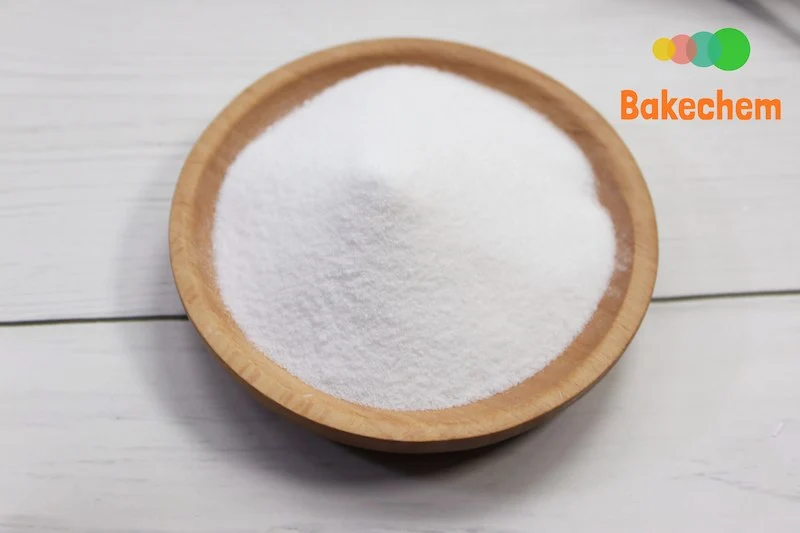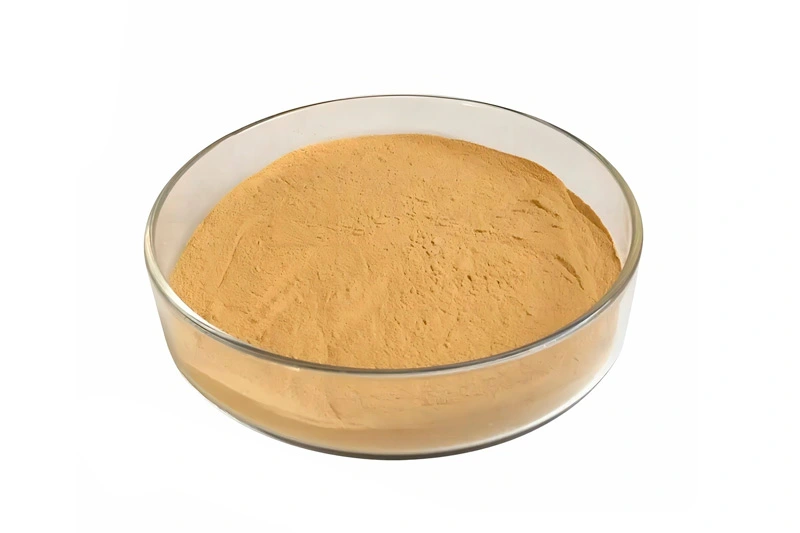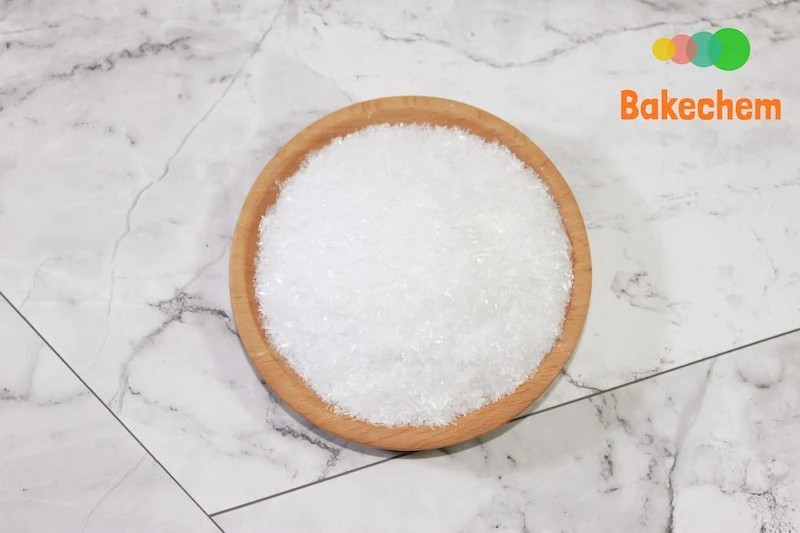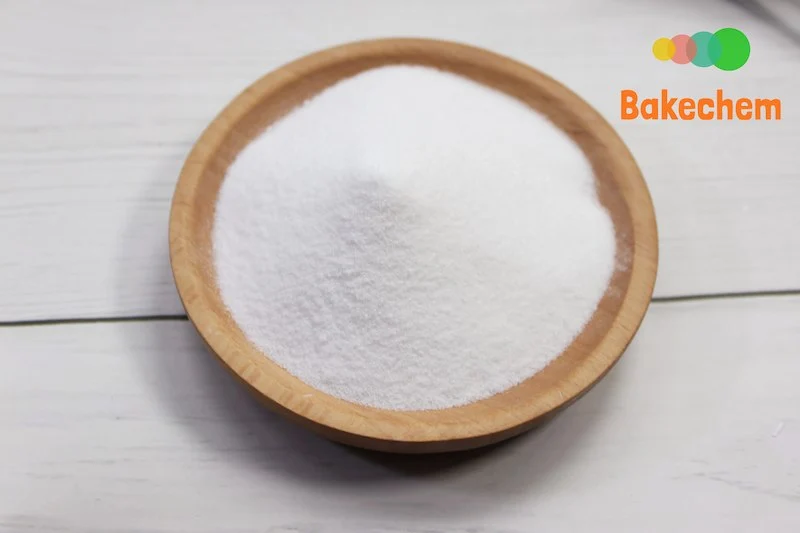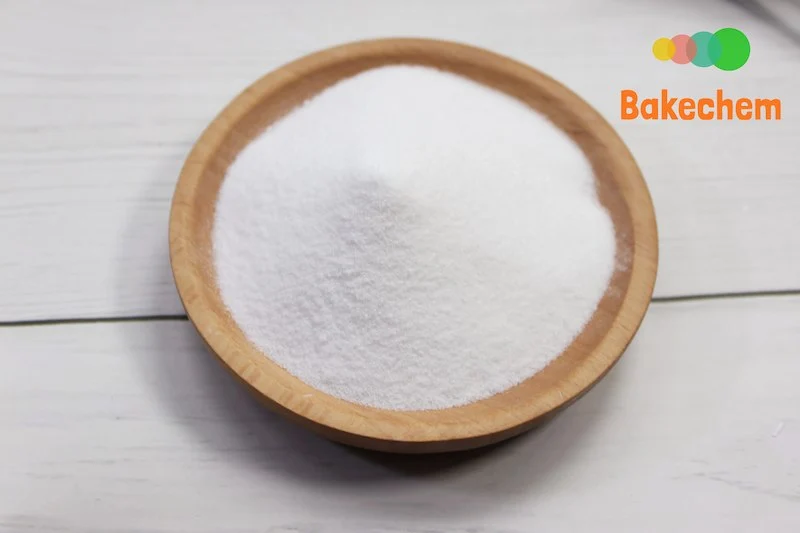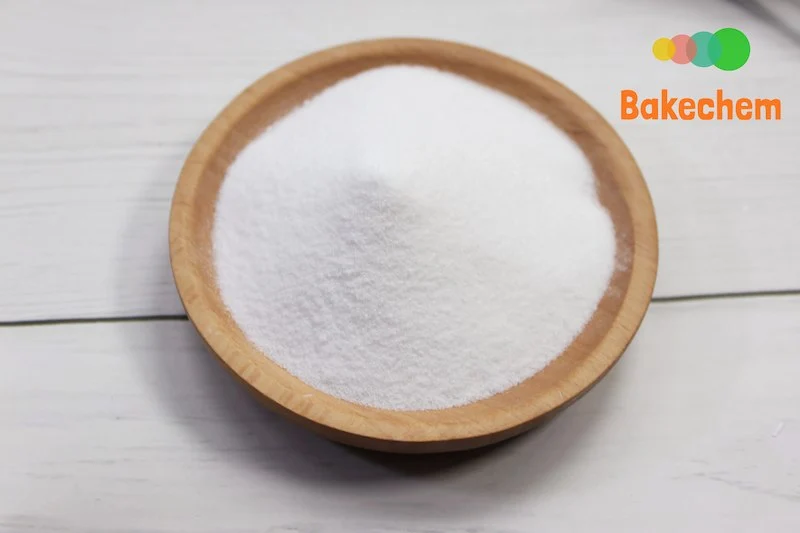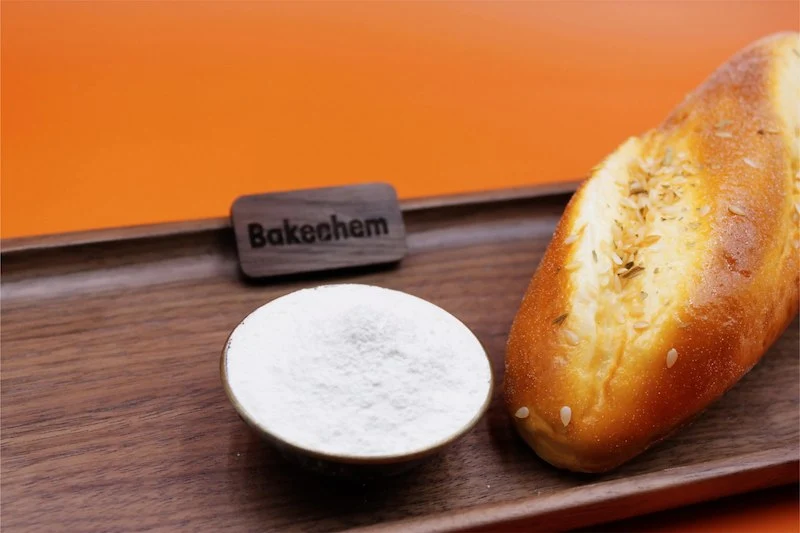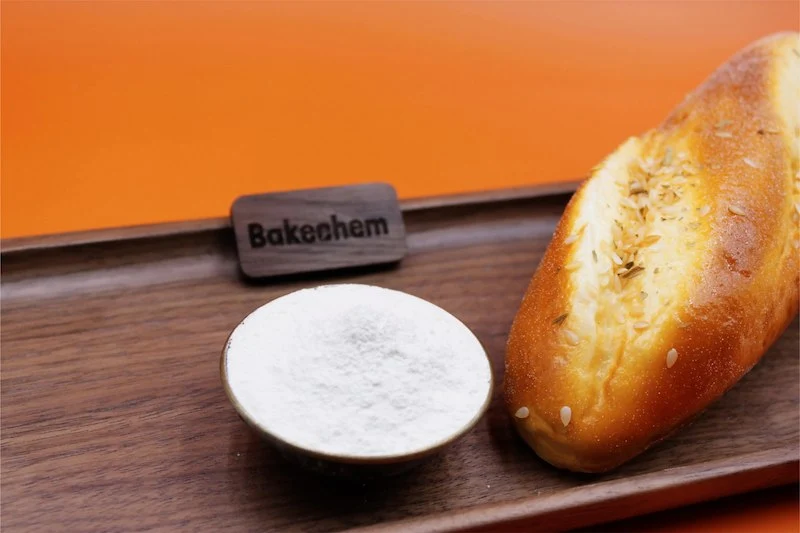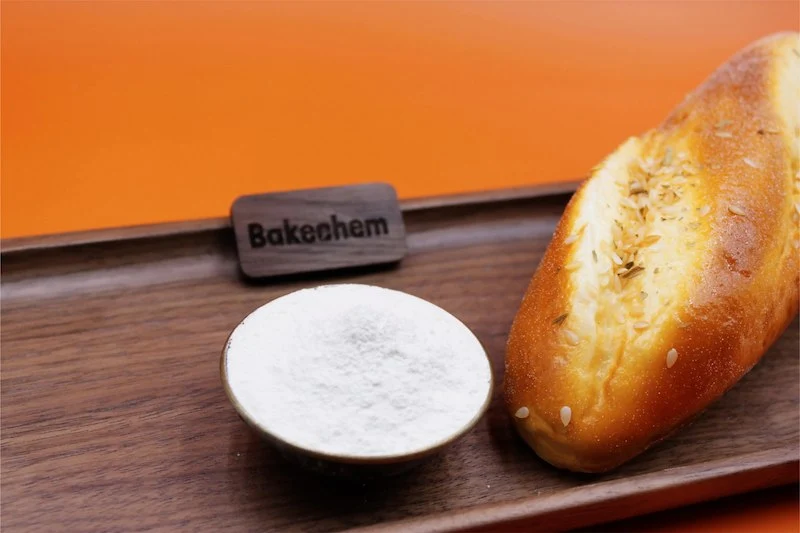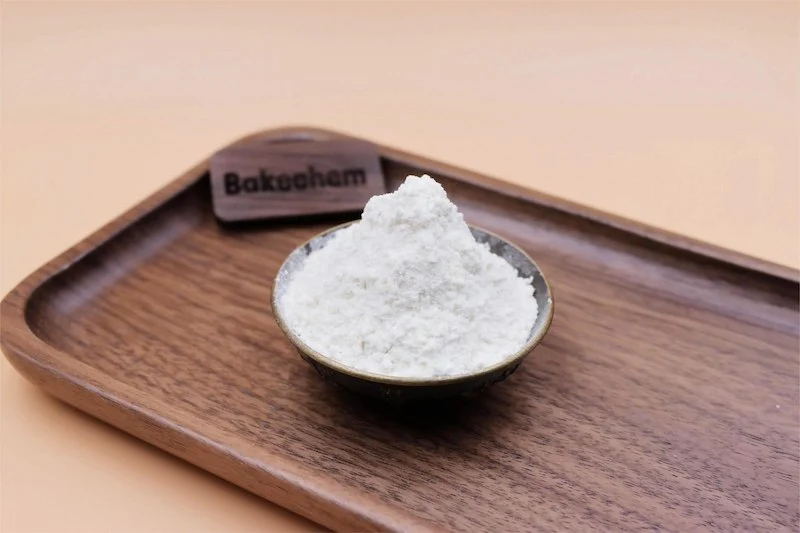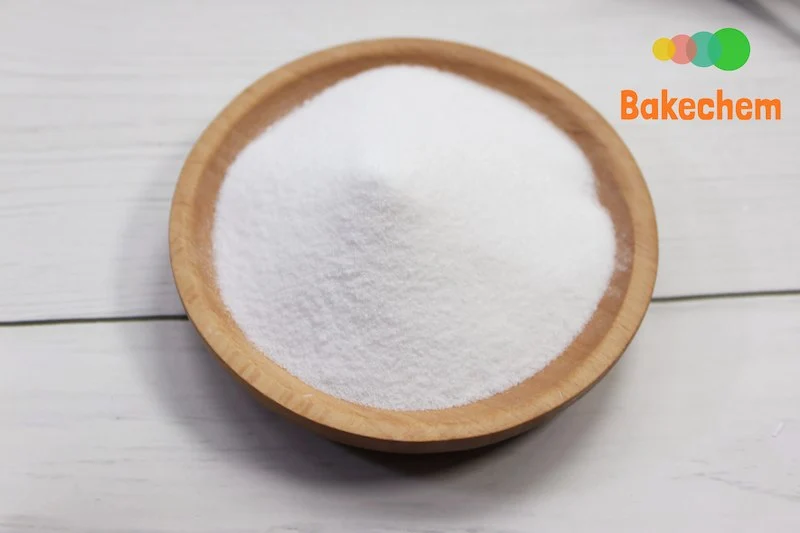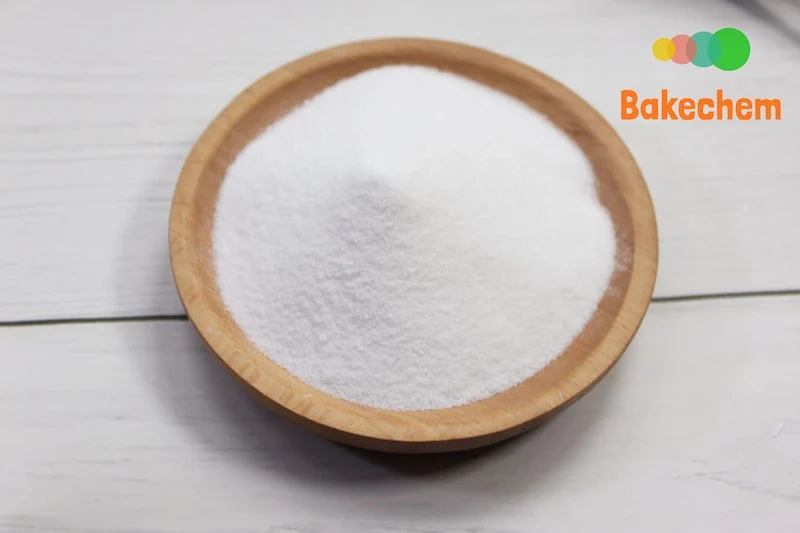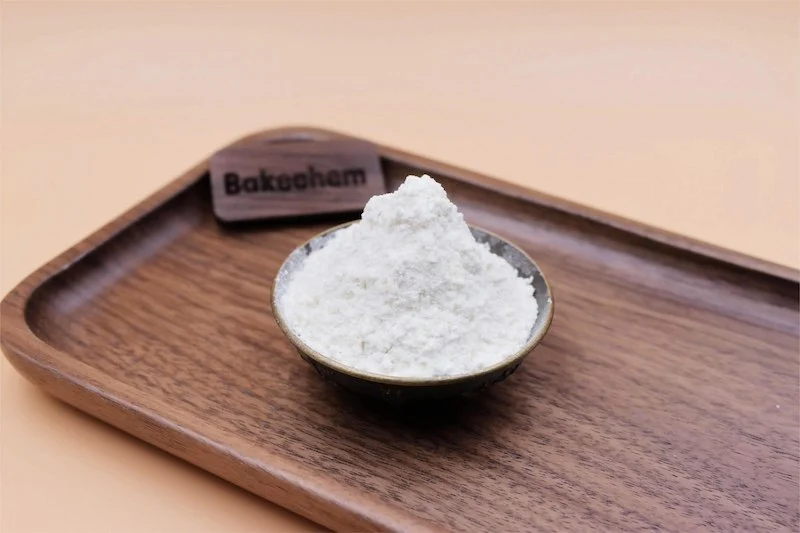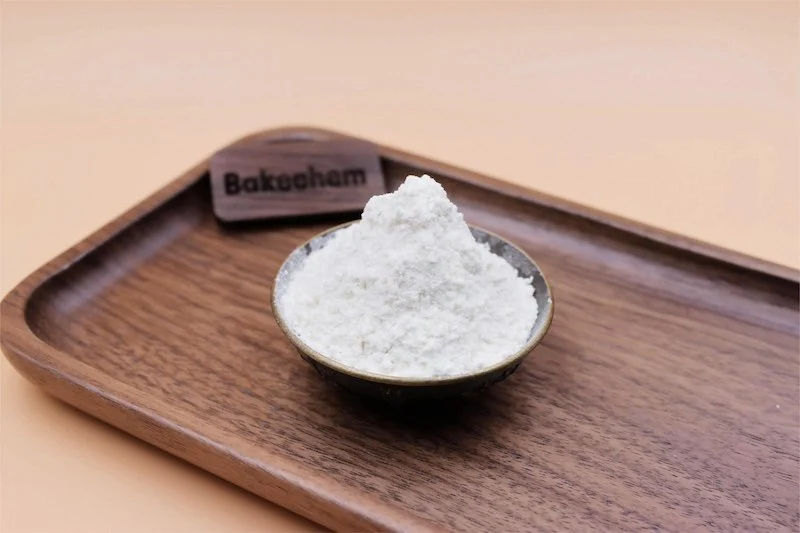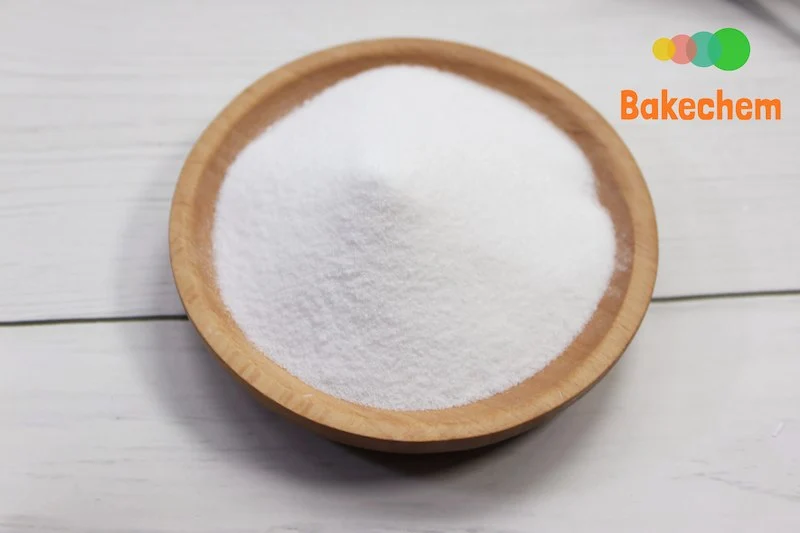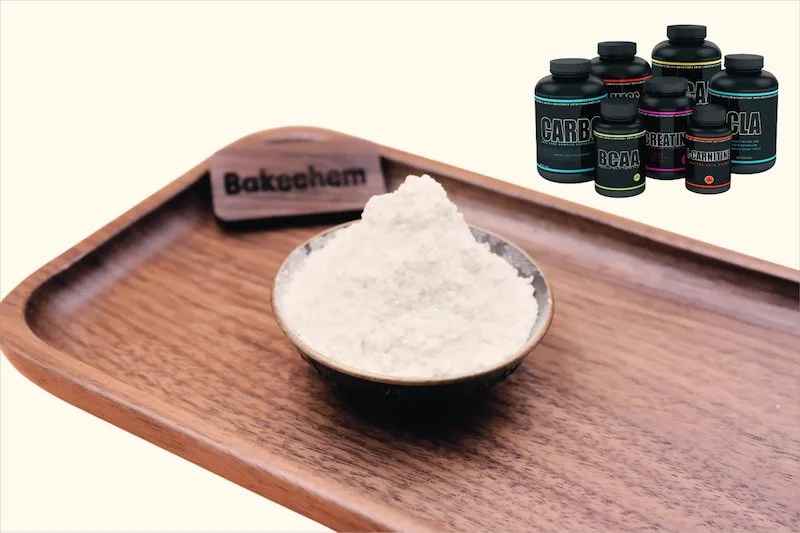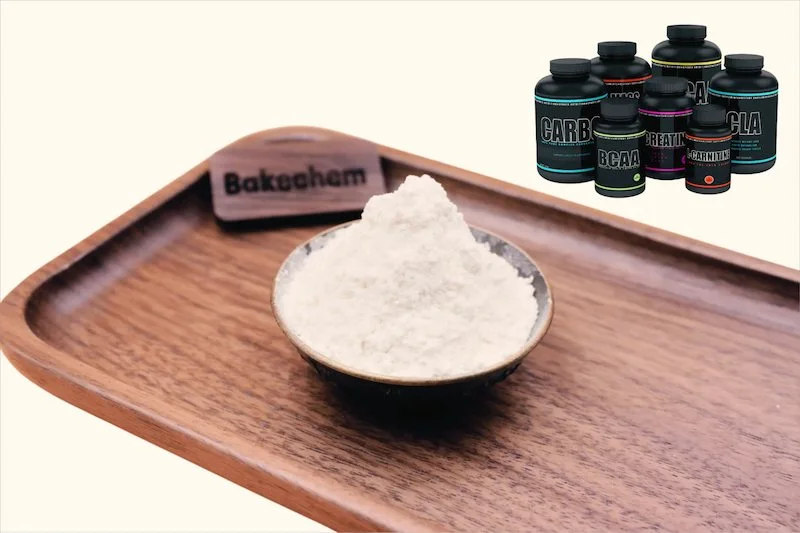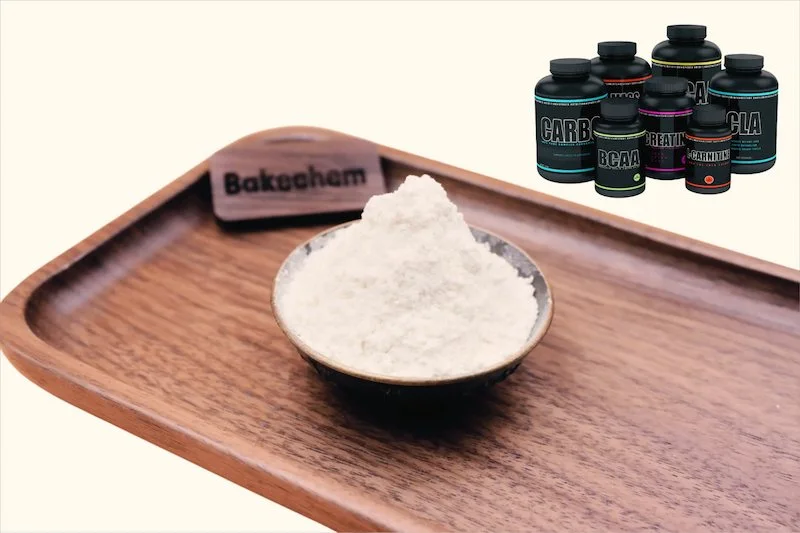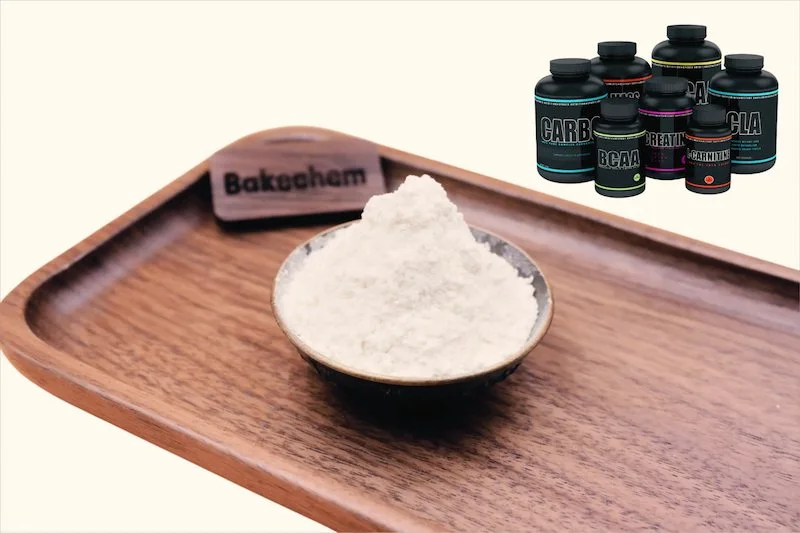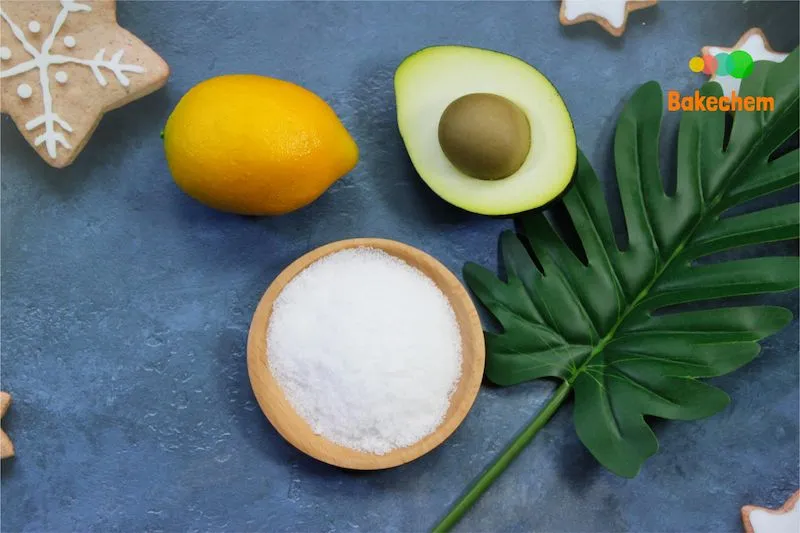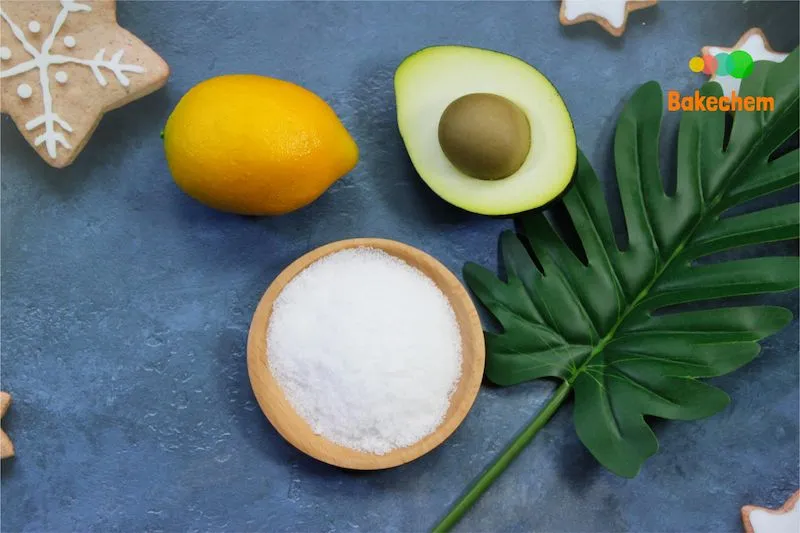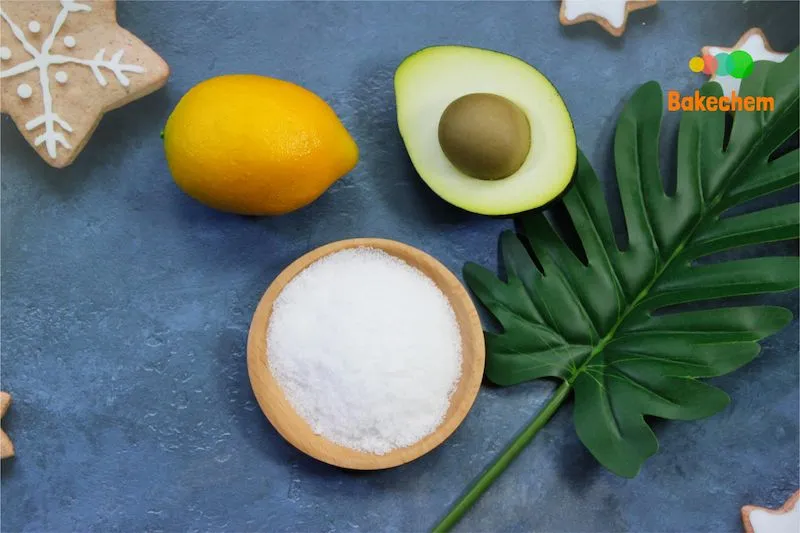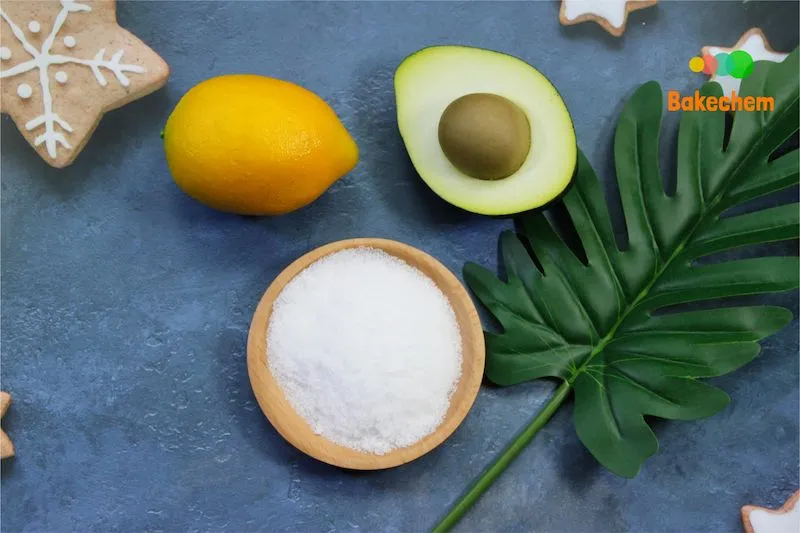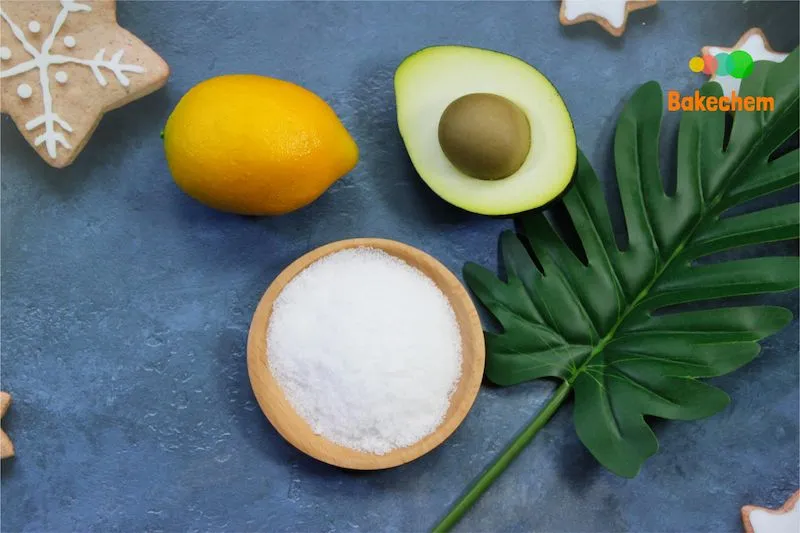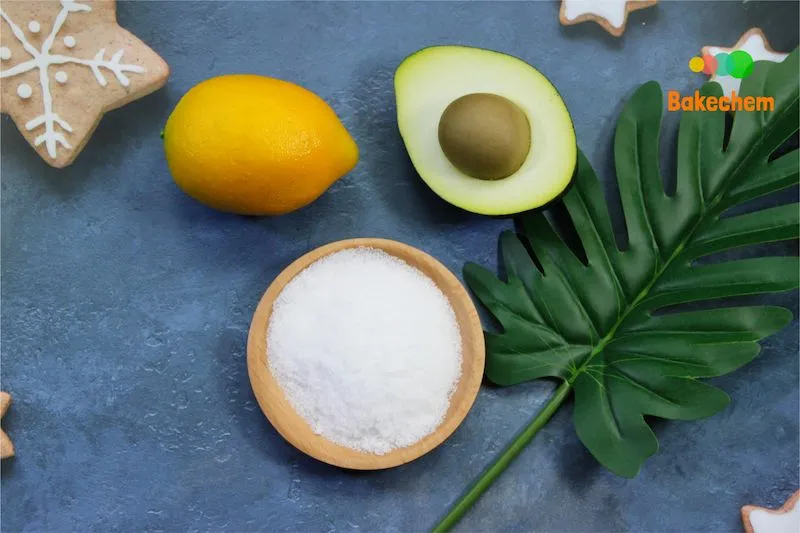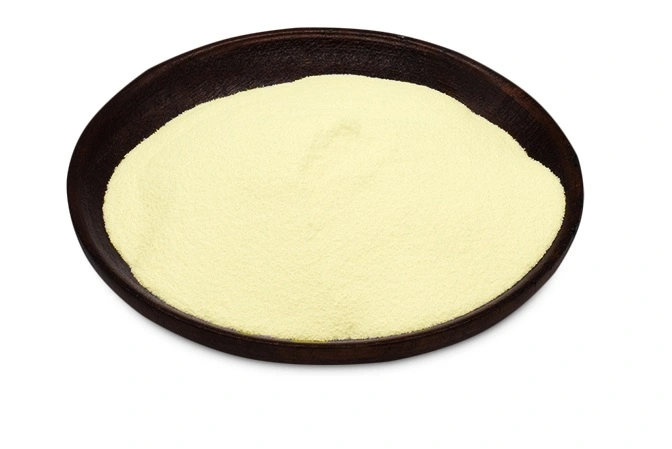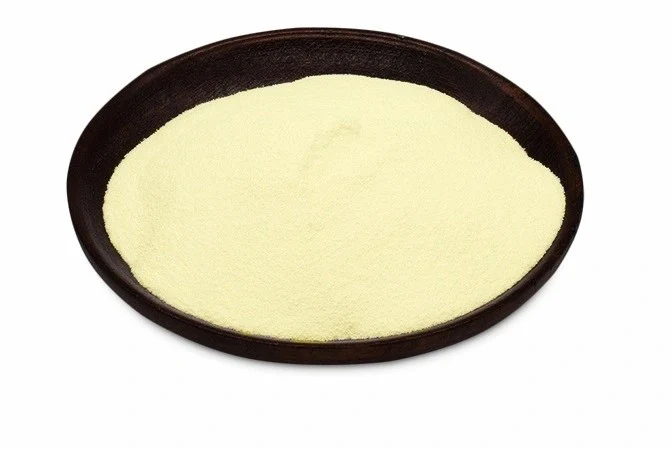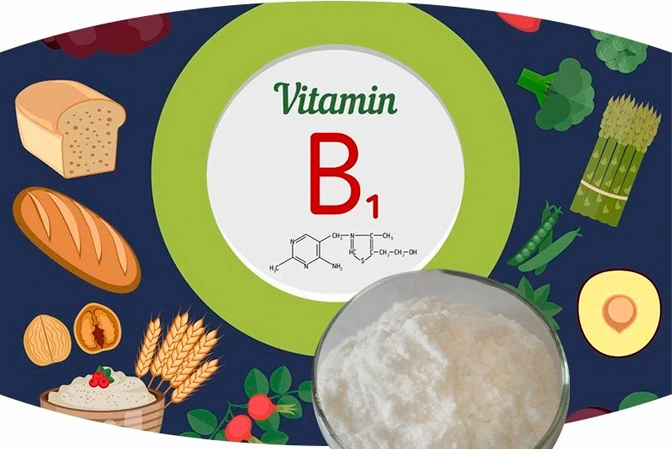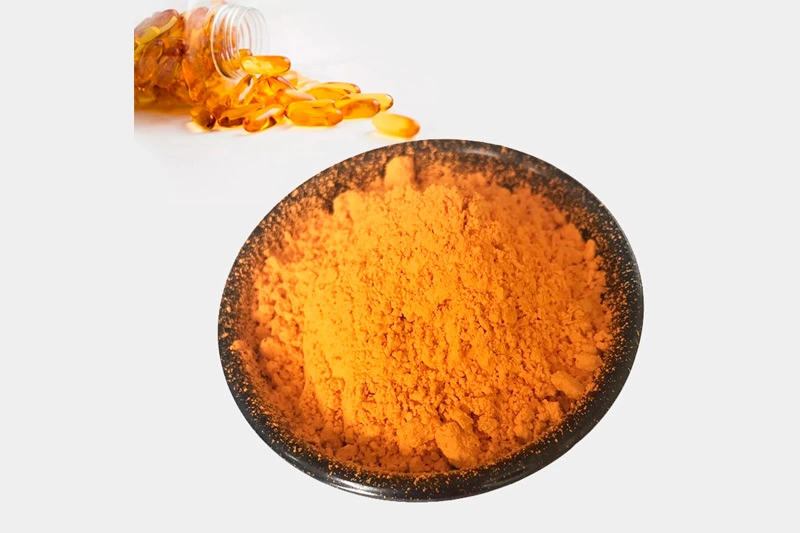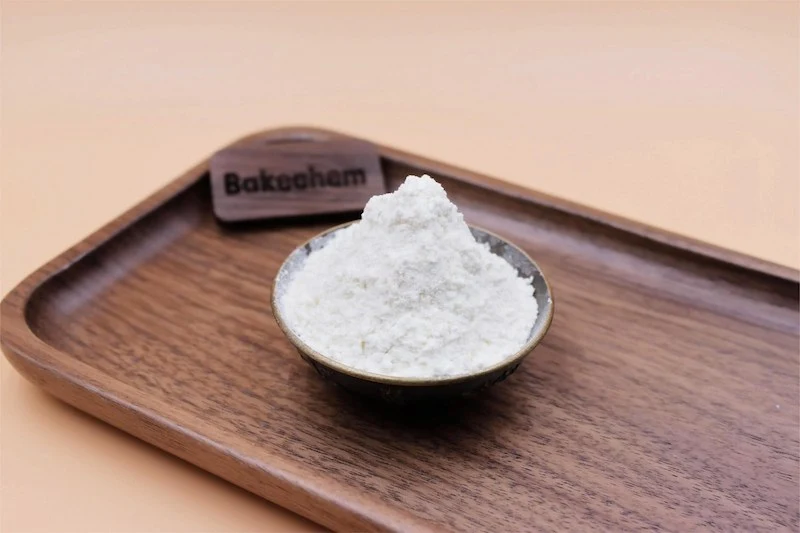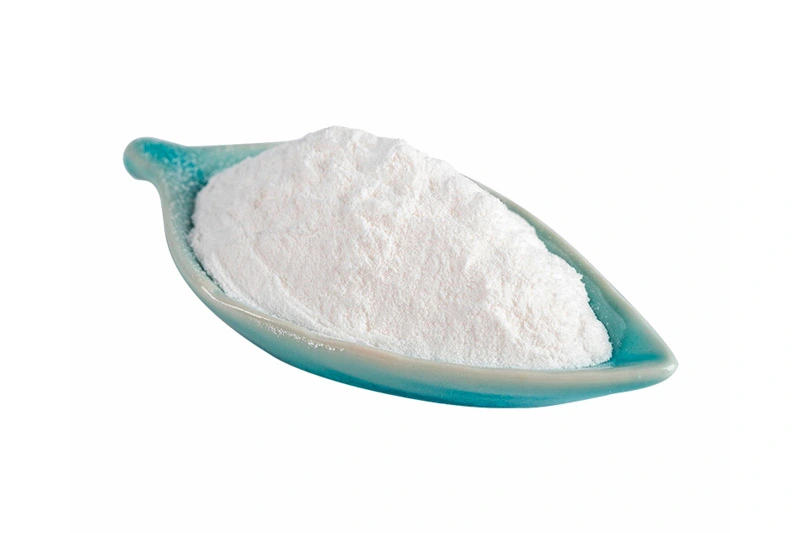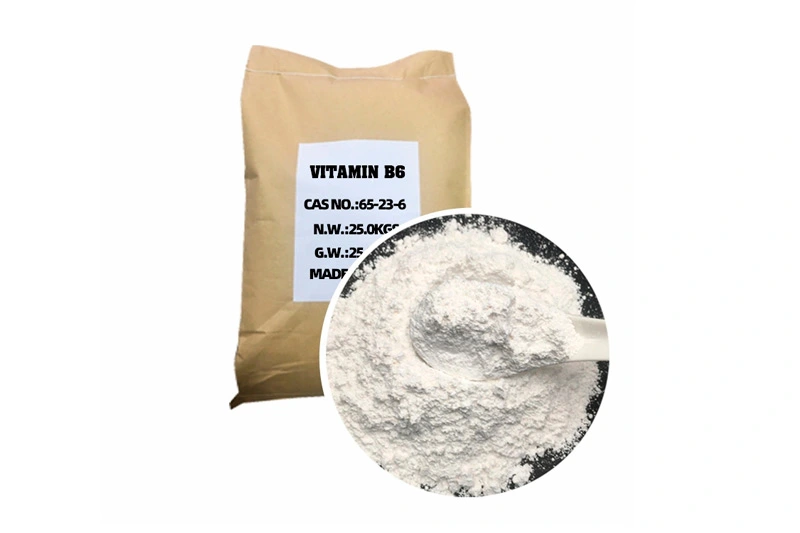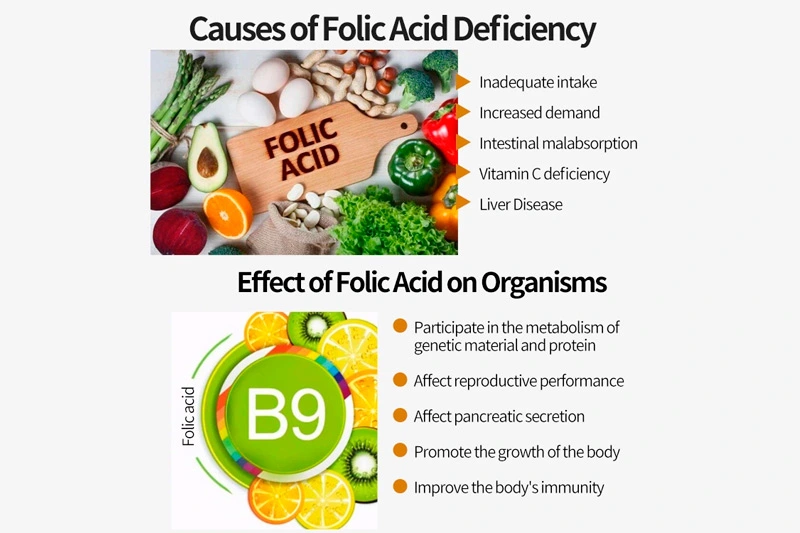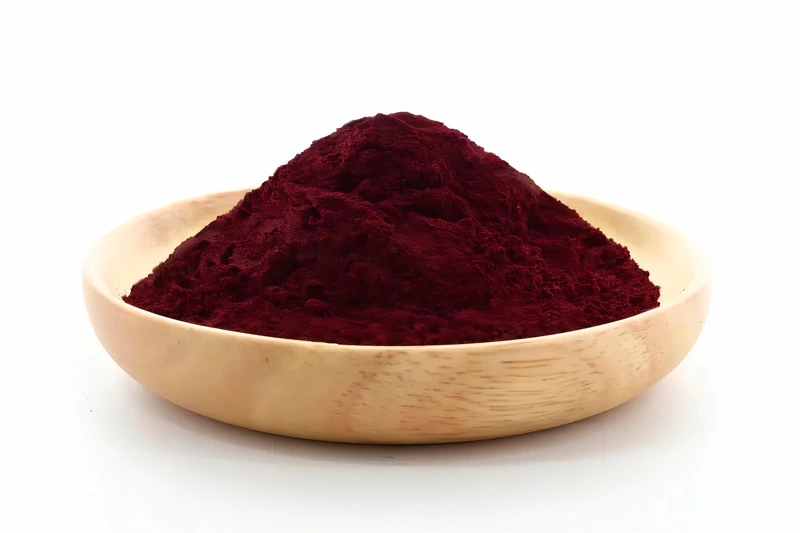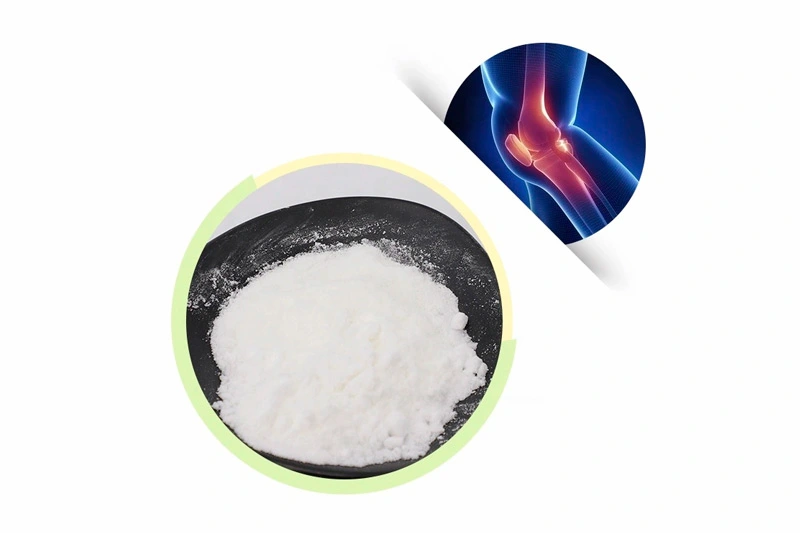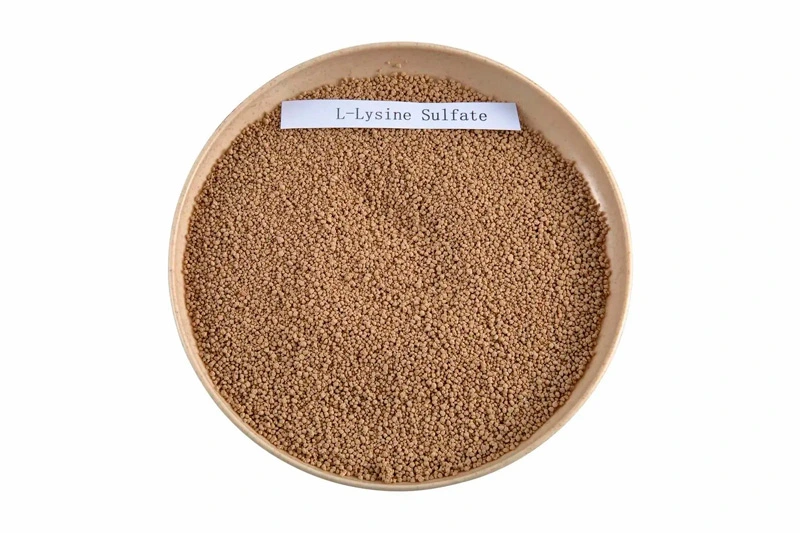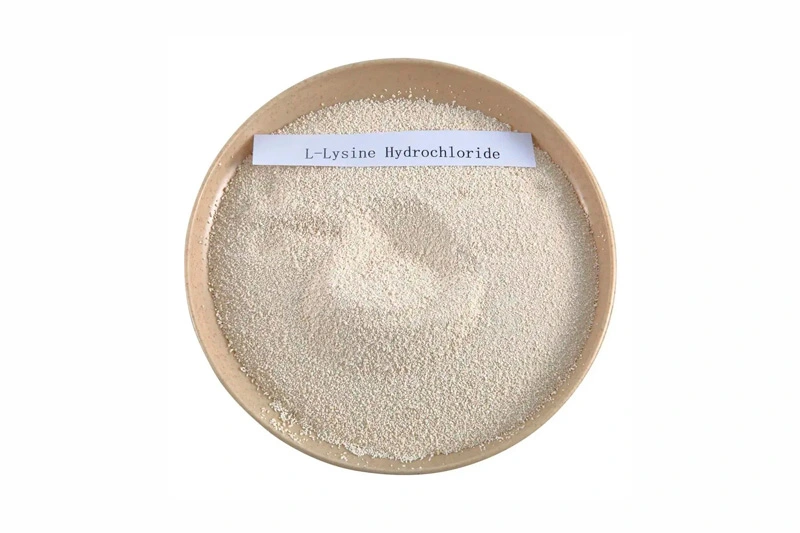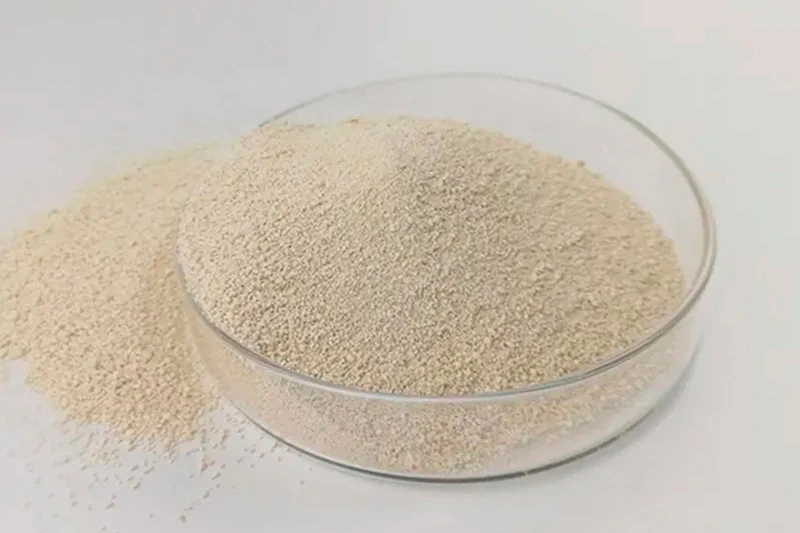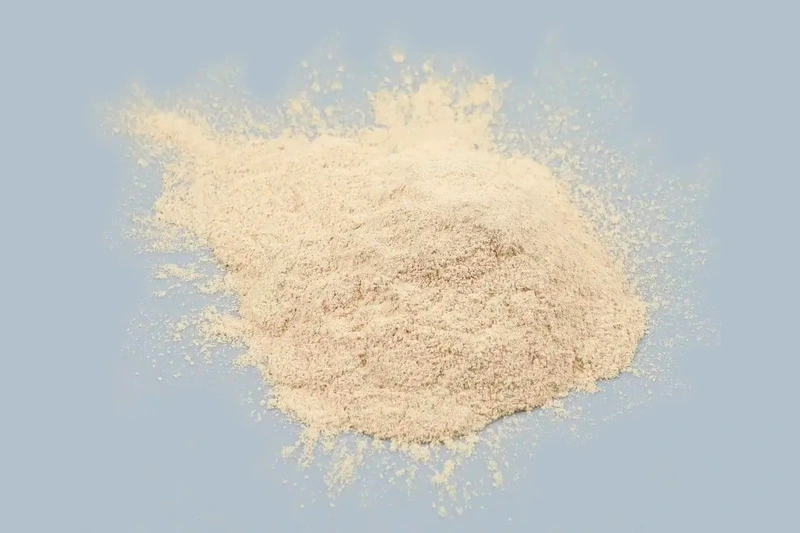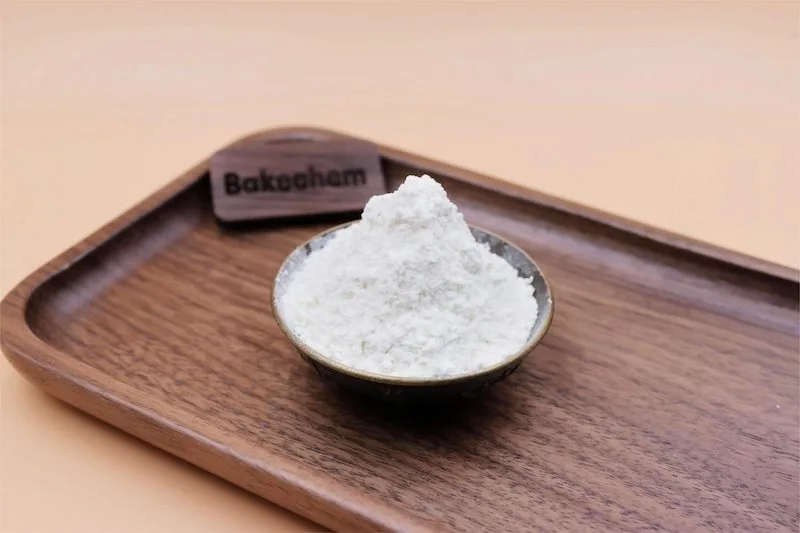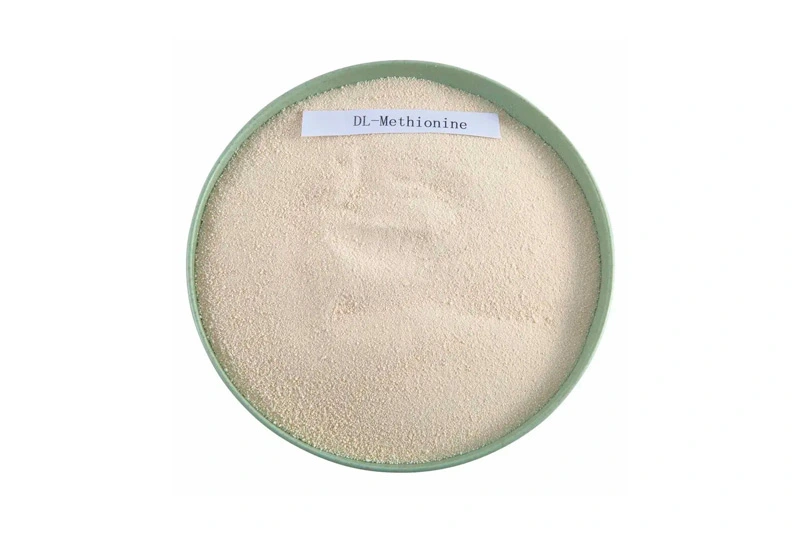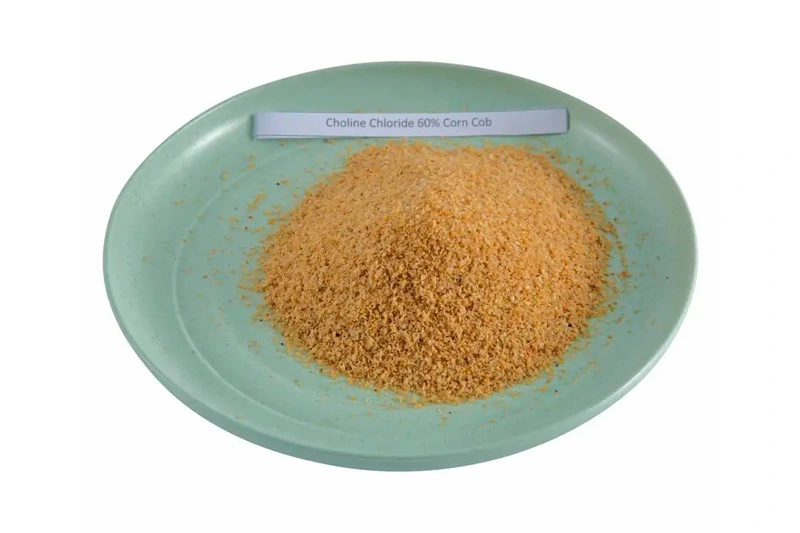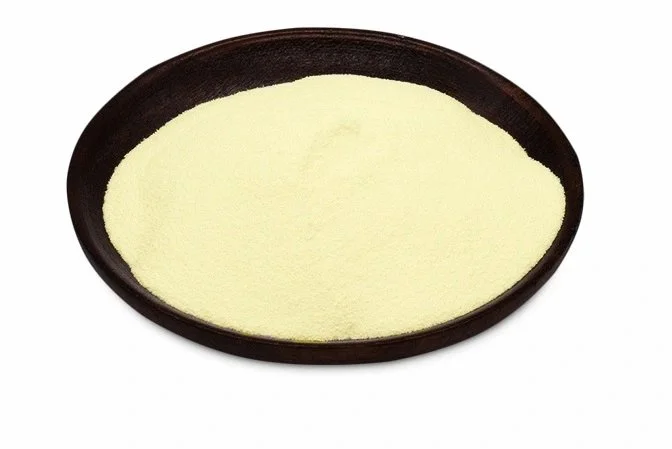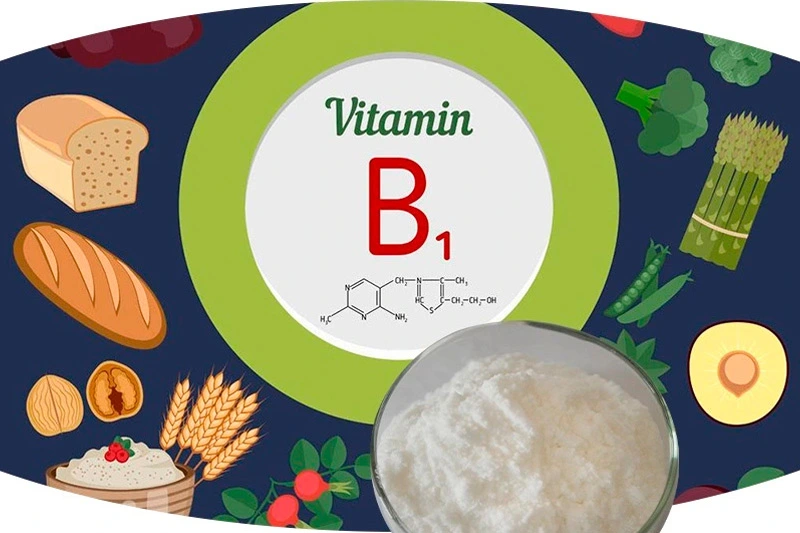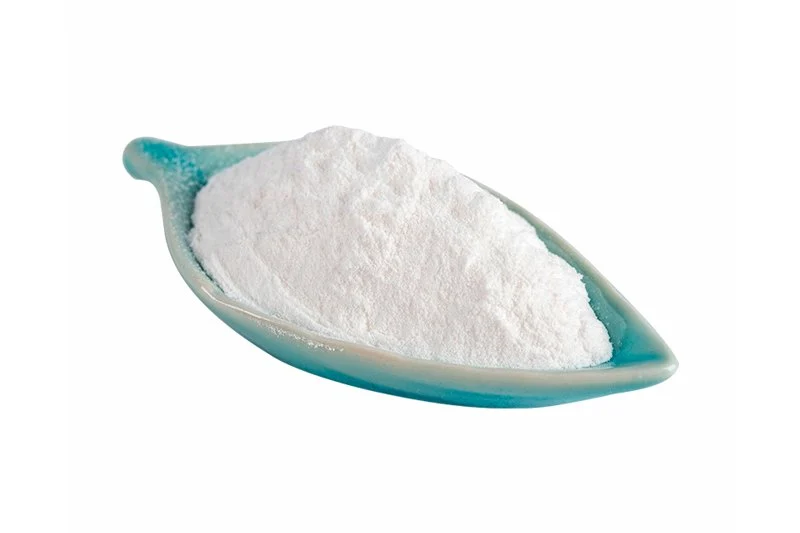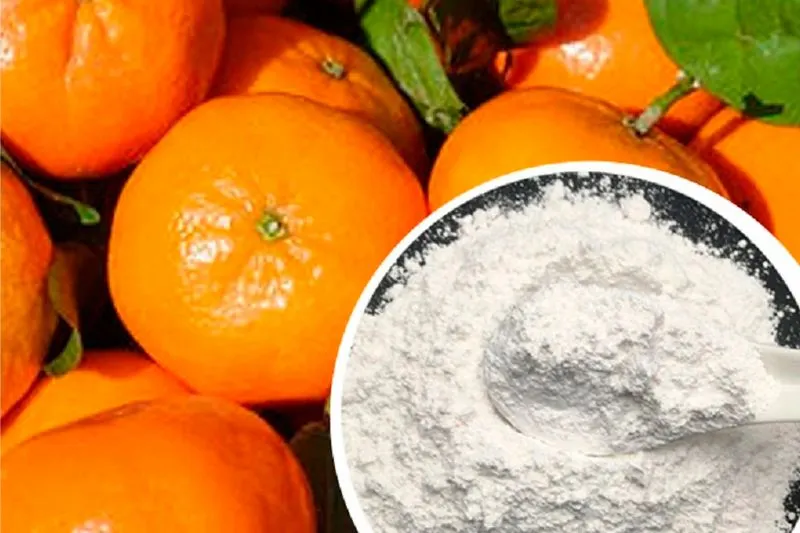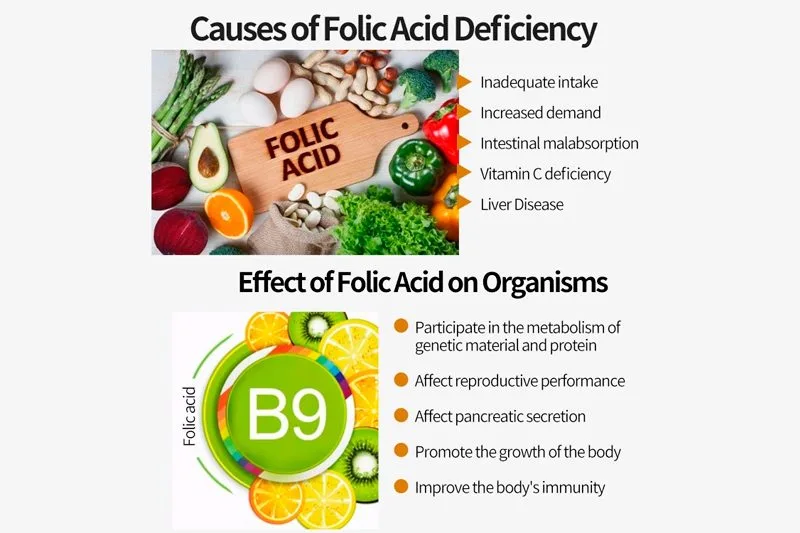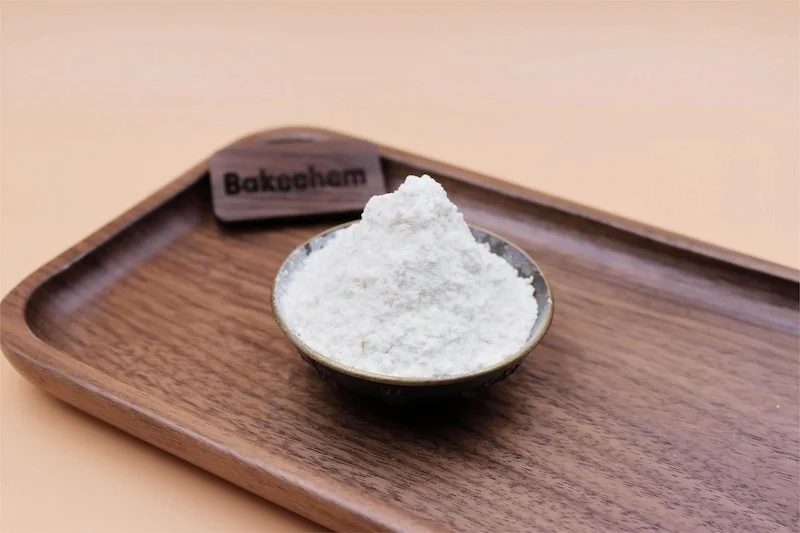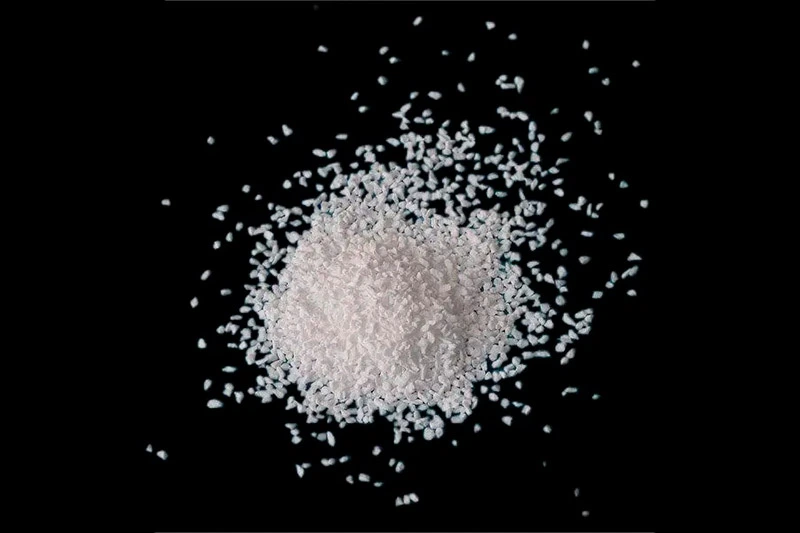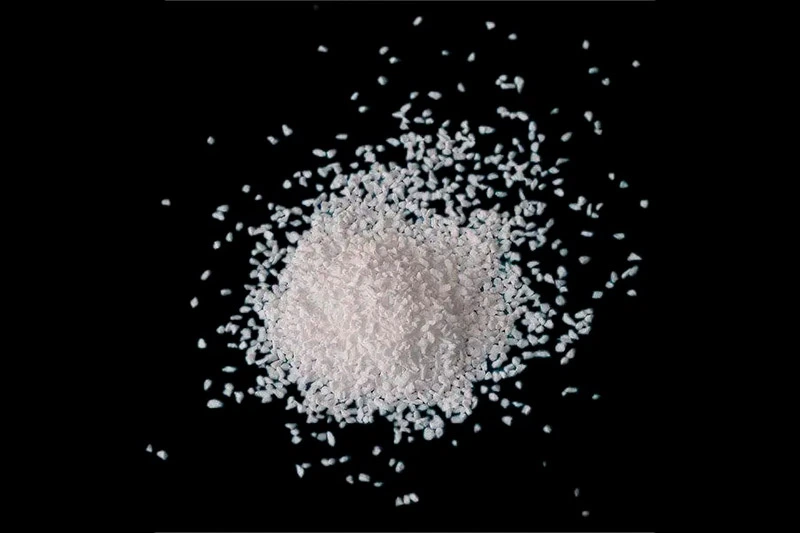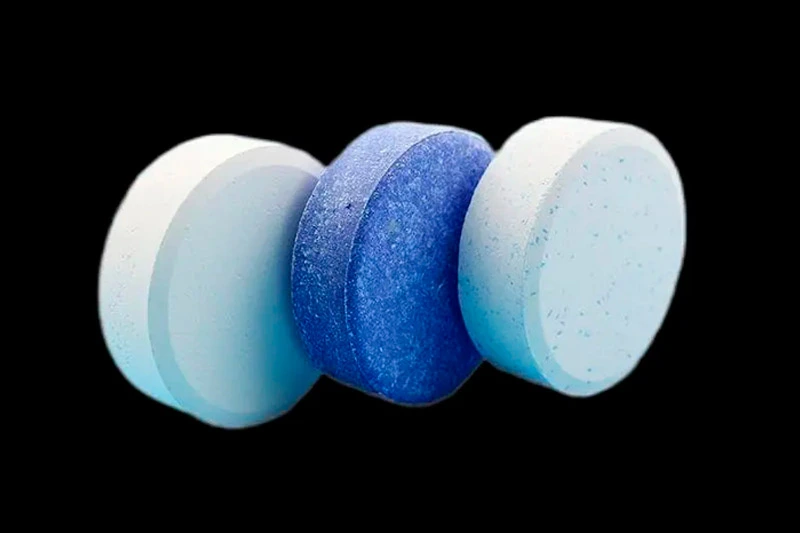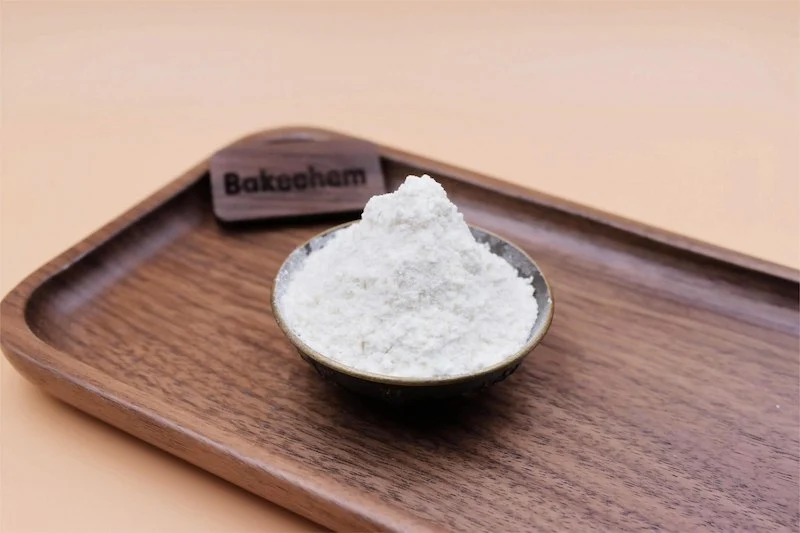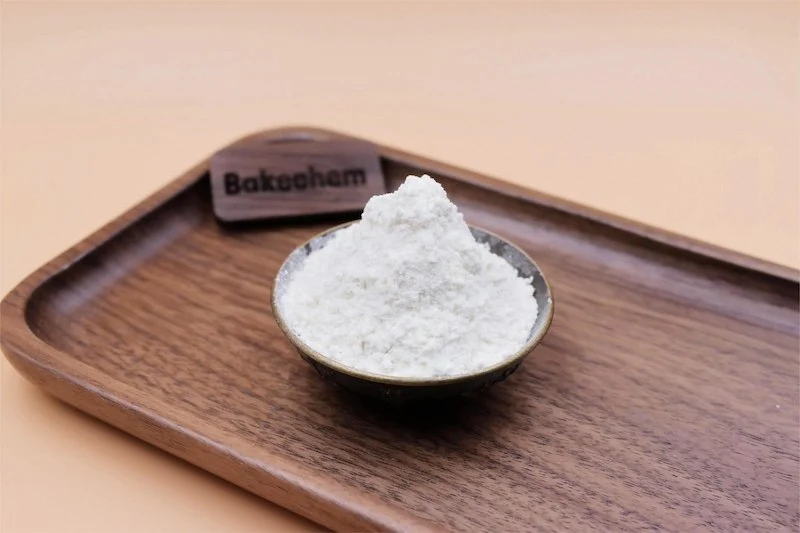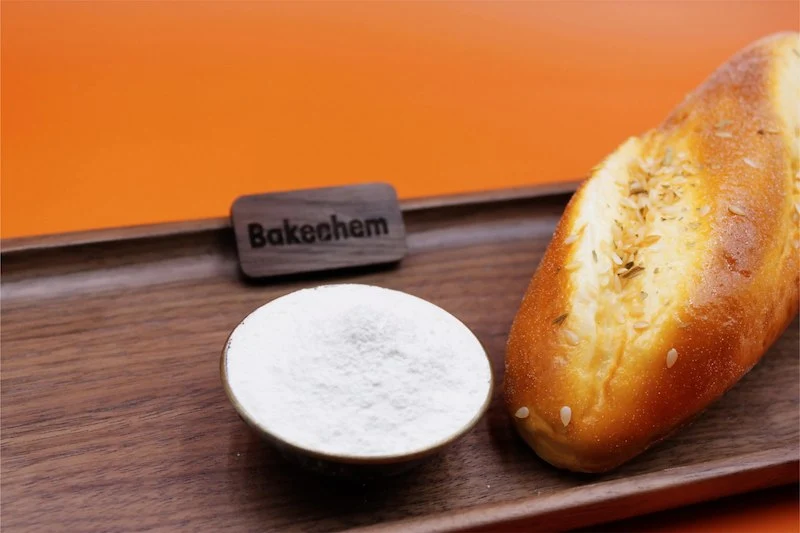E503 Food Additive Ammonium Bicarbonate Powder Specifications
Item | Specification |
Main Content (NaHCO3) % | 99.0~100.5 |
Arsenic(AS) % | 0.0001Max |
Heavy metal(Pb) % | 0.0005 Max |
PH Value | 8.5 Max |
Dry weight loss % | 0.20 Max |
Chloride % | 0.40 Max |
Ammonate | Up to standards |
Clearness | Up to standards |
Iron (expressed as Fe2O3) | 30ppm Max |
Insoluble matter | 0.05% Max |
Sulphates (as SO4) | 0.02% Max |
PACKING: 25KG NET / BAG
STORAGE AND TRANSPORT: IN DRY AND COOL NORMAL TEMPERATURE
SHELF LIFE: 2 YEARS
For other food additives, please contact Bakechem.
E503 Food Additive Ammonium Bicarbonate Powder Solution
Bakechem's E503 Food Additive, Ammonium Bicarbonate Solution, is a versatile ingredient renowned for its application in baking. Commonly known as ammonia powder, it serves as a leavening agent, contributing to the rising and lightening of baked goods. E503 food additive ammonium bicarbonate is particularly popular in baking additives, providing an efficient means to achieve desired textures in biscuits and cookies. Bakers often rely on E503 food additive ammonium bicarbonate powder for its unique ability to produce carbon dioxide gas upon decomposition, resulting in a leavening effect that enhances the crispiness and lightness of baked products. Whether used in traditional recipes or innovative baking applications, Bakechem's E503 food additive ammonium Bicarbonate Solution ensures consistent and reliable performance, catering to the diverse needs of bakers and confectioners. Its role in baking showcases Bakechem's commitment to providing high-quality ingredients that elevate the art and science of baking. As for its effects on the human body, feel free to explore our widespread article on e503 food additive at your convenience.
E503 Food Additive Ammonium Bicarbonate Powder for Baking
Bakechem E503 Food Additive Ammonia Bicarbonate Powder for Baking, also known as E503 food additive ammonium bicarbonate, is a versatile leavening agent that is particularly well-suited for use in various baking applications. Its fermentation properties make it an ideal choice for thin doughs that require longer resting times and for laminated doughs. Additionally, for those seeking commercial products, "baker's ammonia" is available for purchase through popular platforms such as Amazon and other online shopping avenues.
Moreover, in certain recipes, it may be suitable to experiment with using E503 food additive ammonium bicarbonate powder as a substitute for baking powder. However, it is essential to be mindful of its distinct odor, which may influence the overall flavor of the finished product.
This food additive has a rich traditional use in baking, particularly in the creation of crispy cookies and thin, crisp biscuits, where it plays a crucial role in upholding the authenticity of traditional recipes.
Buy E503 Food Additive Ammonium Bicarbonate Powder
When considering a leavening agent for baking, there are compelling reasons to choose Bakechem E503 Food Additive Ammonium Bicarbonate. As a leading E503 food additive ammonium bicarbonate powder manufacturer, our commitment to quality and consistency is evident at every stage of production. With our state-of-the-art factory dedicated to manufacturing high-quality baking ingredients, customers can trust in the reliability of our products. By sourcing directly from a reputable ammonium bicarbonate supplier, businesses can ensure that they receive a superior product that meets rigorous standards.
Choosing Bakechem food ingredients manufacturer means opting for a product that has been crafted with expertise and precision, offering the ideal solution for various baking needs. With a focus on delivering top-notch quality, our company stands as a trusted source for premium-grade E503 food additive ammonium bicarbonate powder, catering to the diverse requirements of the baking industry.
E 503(i) Ammonium Carbonate vs E 503(ii) Ammonium Hydrogen Carbonate
E503 food additive ammonium carbonate and ammonium hydrogen carbonate (also known as ammonium bicarbonate) are actually very closely related, and for most purposes, they can be considered the same thing. Here's a breakdown:
Chemical Formula:
E503 food additive ammonium carbonate: (NH4)2CO3
E503 food additive ammonium hydrogen carbonate (ammonium bicarbonate): NH4HCO3
Structure: E503 food additive ammonium carbonate is the result of combining two ammonium (NH4) groups with one carbonate (CO3) group. Ammonium bicarbonate is formed by combining one E503 food additive ammonium group with one bicarbonate (HCO3) group. While the structure differs slightly, upon heating, ammonium bicarbonate readily decomposes into ammonia, water, and carbon dioxide, essentially becoming ammonium carbonate.
Food Additive: Both E503 food additive ammonium carbonate and E503 food additive ammonium bicarbonate are covered under the same E number, E503, as a food additive.
Key Distinction:
In a technical sense, E503 food additive ammonium carbonate exists as a stable compound only under specific conditions (high pressure and low temperature). At ambient conditions, it readily decomposes into E503 food additive ammonium bicarbonate and releases water vapor. Therefore, the form most commonly used as a food additive and encountered in baking is ammonium bicarbonate (E503).
For most practical purposes, E503 (ammonium bicarbonate) and E503 food additive ammonium carbonate act the same way in food applications.
Technically, they are slightly different chemical structures, but E503 food additive ammonium carbonate readily converts to ammonium bicarbonate under normal conditions.
E503 food additive ammonium bicarbonate common names and forms
Baker's Ammonia: This name is widely used in baking contexts, particularly for its role as a leavening agent in cookies and crackers.
Hartshorn: Historically, this term referred to a similar leavening agent derived from deer antlers. Today, it is often used synonymously with ammonium bicarbonate in traditional baking recipes.
E503 food additive ammonium Hydrogen Carbonate: This name describes its chemical composition more precisely, indicating the presence of ammonium and bicarbonate ions.
Carbonate of Ammonia: Another name highlighting its composition, emphasizing the carbonate component.
Ammonium Acid Carbonate: This name underscores the slightly acidic nature of the compound due to the bicarbonate ion.
ABC: An abbreviation commonly used in the food and baking industry to refer to ammonium bicarbonate.

